JOURNAL MEDIATION

Issue 5
in association with


in association with
Our unique psychotherapeutic method of mediation training will equip you with a framework for conflict management and resolution, crucial for dealing with commercial, employment, workplace, industrial, legal and personal disputes.

You will benefit from teaching provided by highly experienced tutors who are mediators from the psychotherapy and legal professions.
Students who successfully complete the course will achieve Accredited Mediator status.
In addition to a beautiful study location in Regent’s Park, we also offer bespoke in-house courses.
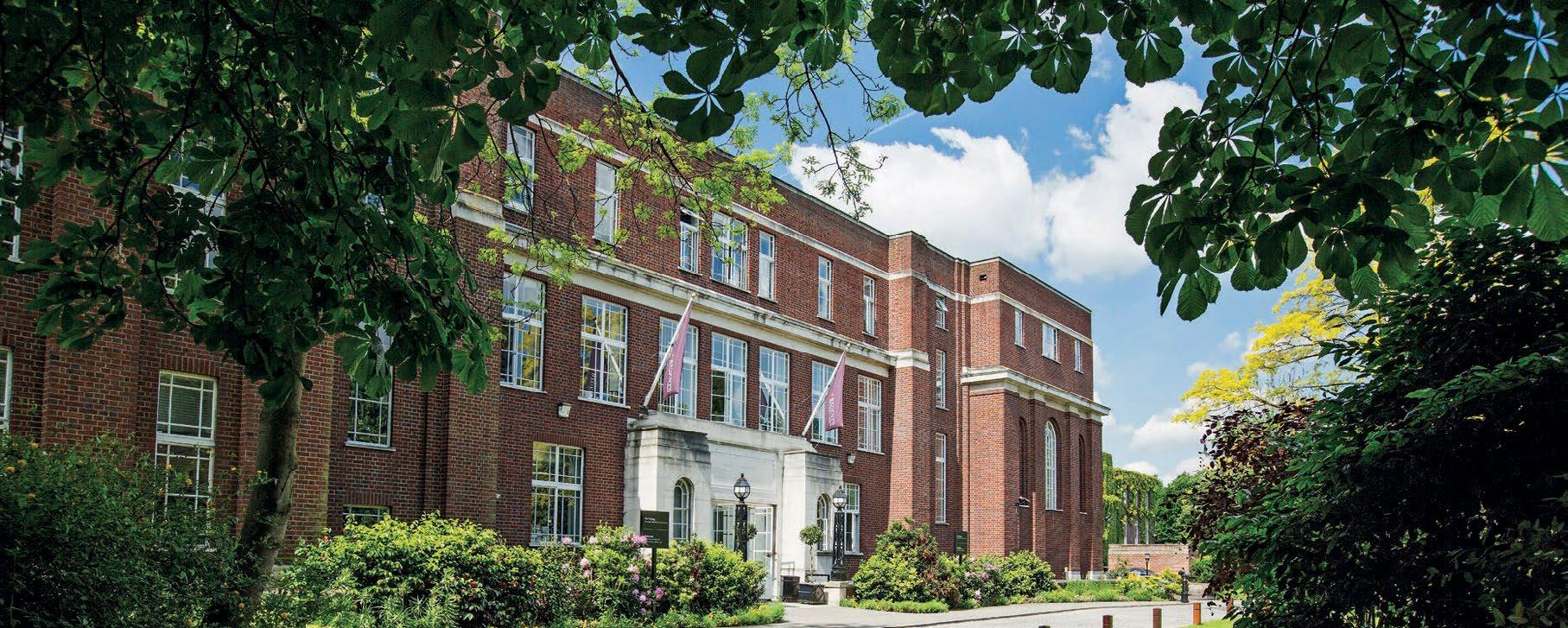
The 5 day course qualifies for Bar Council and Law Society approved CPD hours.
Find out more and sign up online for an open evening
www.regents.ac.uk/mediate
T: 020 7487 7505
E: ProfCoursesRSPP@regents.ac.uk
Mediation and Alternative Dispute Resolution

(5 day course)
5 day course start dates:
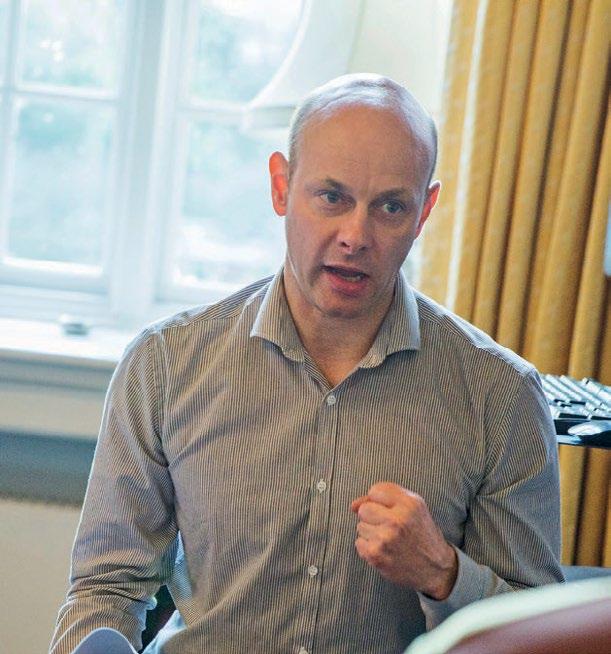
14, 15, 20, 21, 22 July
6, 7, 12, 13, 14 October 8, 9, 14, 15, 16 December
Open evenings:

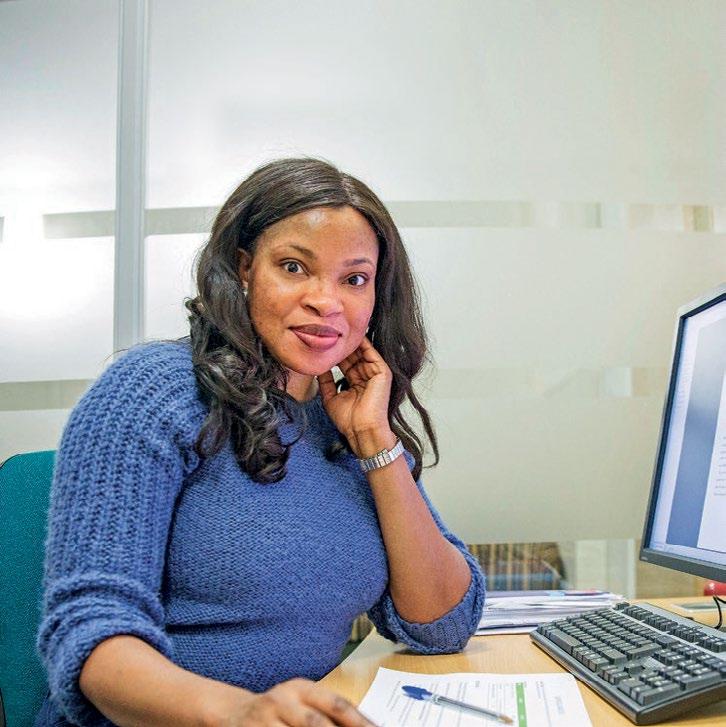

27 June, 19 September, 21 November








“Uncertain times” seems to be the phrase du jour in our latest issue. It has only been a year since the Brexit results. Who would have predicted the events to follow; the farcical conservative leadership race, the snap general election – the results! The country has never been more polarised and mediation has never been more necessary.
One organisation is tackling this head on. Talking Works is a charity that teaches mediation skills to our future generations, and one that the journal is proud to support. Read more about their incredible work on Page 30.
This year we have had junior doctors strikes, news articles highlighting the struggle of nurses and the number relying on food banks or quitting the profession altogether. Mediation in the NHS has a huge role to play in helping alleviate stress on staff but also in saving the NHS funds which are so desperately needed. Read about some great case studies of mediation in the NHS from those within the organisation on Pages 37 and 40.
Budget cuts, lack of pay increases and short staffing; it is not just the public sector workers that are feeling the strain. The number of workers signed off sick for mental health reasons has dramatically increased in recent years. Mediation, the benefits and positive impact on mental health is explored further on Pages 27 and 32.
You may think that workplace or family disputes are the only ones where emotions run high, but on Page 34 we get an excellent insight from a mediator as to the high emotions that are also present during civil and commercial disputes, along with an in-depth look at what really happens during a mediation, allowing results where other attempts have failed.
So whether it is a playground disagreement, a workplace fracas or a legal dispute over business contracts you can find out all about how mediation can help alleviate the stress cost and time spent, and there are many more articles in here to help guide you through the process.
I hope you enjoy this latest issue, and have a wonderful summer.
UK Mediation Journal
6. CMC Annual Conference – May 2017 Conference Sketch

9. Rethinking Politics: Lessons from Workplace Mediation and the Arts
11. Confidentiality and Without Prejudice in Mediation
12. Taking Risks? Taking Responsibility…
15. It’s all about the party... But not of the cocktails and canapé variety - or at least not this time.
16. Can Mediators Add Value?
17. Independent Mediators Limited
19. Working with businesses – saving them time and money
20. How will the general election and BREXIT impact HR professionals?
22. Make Mediation Work for You
25 . Strategic mediation strategy to minimise the impact of change
27. Mental Health and Mediation
29. Disability Mediation: an Overview
30. Future Generations - Conflict Resolution Skills for School and Beyond
32. Investing in Mental Health in the Workplace has Many Benefits
34. The Value of Emotions
37. Funding Resolution not Conflict: Mediation as Part of the Employee Relations Toolkit

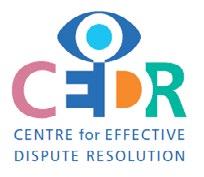
40. Beyond Mediation – saving us as much as £50,000 a year
42. ‘You Don’t Need a Mediator…’
44. How to Choose a Mediator
47. Mediation – a Collaborative Approach to Dispute Resolution in the South West Between M4C and CESW
49. Directory of Mediation & Training Providers
Whilst every care has been taken in compiling this publication, and the statements contained herein are believed to be correct, the publishers do not accept any liability or responsibility for inaccuracies or omissions. Reproduction of any part of this publication is strictly forbidden. We do not endorse, nor is Iconic Media Solutions Ltd affiliated with any company or organisation listed within. It is advised before appointing a mediator or trainer that you carry out your own quality and competence checks.
Sponsored by:
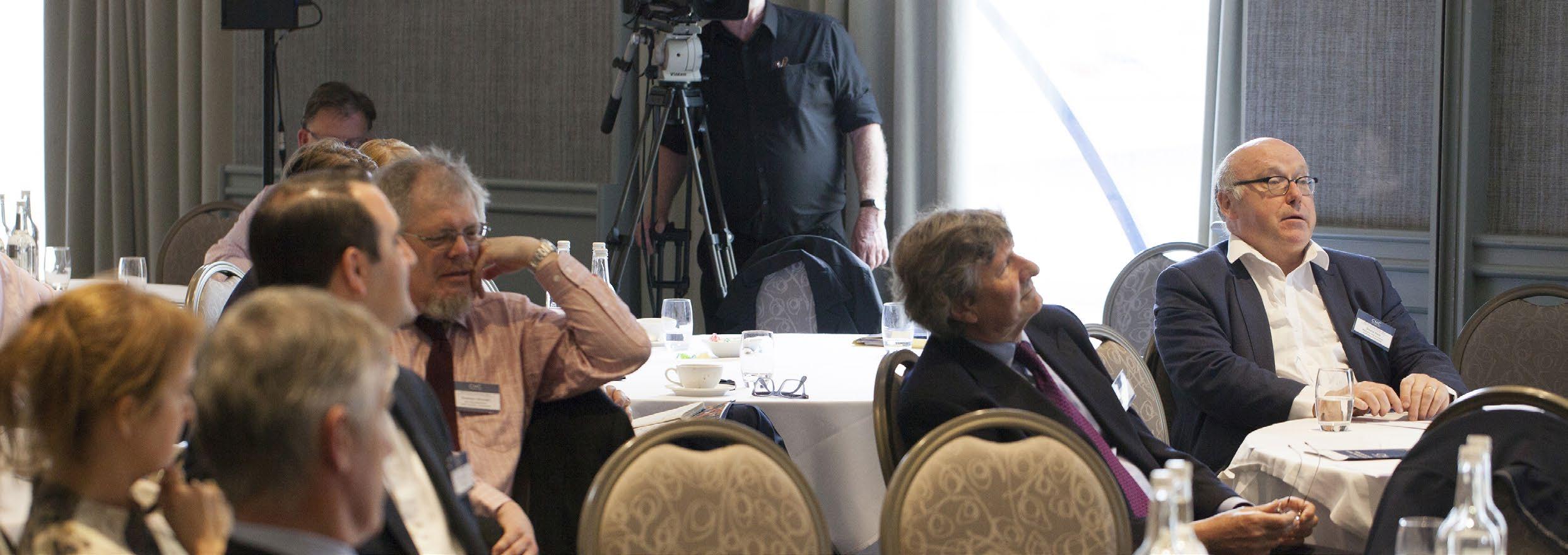
It was entirely in keeping that the pre-Conference dinner was held in a restaurant named The Bank, situated on the edge of a canal. Mediators are trained to expect the unexpected, and it was a pleasant surprise to discover that a Bank teetering on the brink can provide such convivial ambience and serve up palatable nourishment! A thoroughly pleasant evening was nicely rounded off with amusing tales of the unexpected from Anthony Sendall, who regaled the well-attended gathering with his mediation experiences involving “bare breasts, urine, meat cleavers, guns, ham as a weapon of choice, noisy sex, and witchcraft”.
Dr Sue Prince, Associate Professor from Exeter University opened the Conference’s substantive proceedings, outlining mediation’s ‘carrot and stick’ role in the justice system. (Was it the carrot at the end of the tunnel, supposedly seen by David Beckham?) Her extensive experience over many years and several continents was well demonstrated. Some aptly-noted statistics revealed yet again the lack of awareness about mediation. (Surely there cannot be anyone out there who still is not aware of mediation?) The conundrum was expertly answered by Sue when she described mandatory mediation in Ontario: the pleasure of seeing everyone so well acquainted and fully knowledgeable of every aspect of the process.
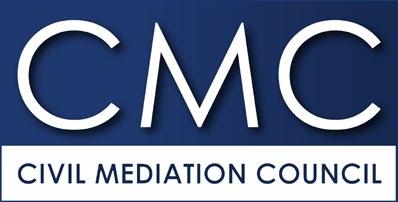

Introducing mediation schemes to replace well-oiled grievance procedures into Local Government and the NHS might seem a daunting task. Yet Catherine Anderson and Karl Cockerill described how, with passion and resolve, they succeeded in the London Borough of Newham and East Lancashire Hospital Trust respectively. Karl’s description of the dispute over a fire door“It’s not about the door” - was a great example of how workplace disputes were about relationships rather than substance.
The Parallel Skills Workshops generated the now customary dilemma for conference delegates: which workshop can I afford to miss? The least miss-able – and most popular – seemed to be ‘Crisis Bites’. Was this because it offered delegates a platform from which to boast about their amazing mediations? “I had a mediation last week where...” was the most common refrain. Yet the cumulative expertise of the eminent array of speakers, Colin Manning, David Richbell, Mark Mattison and Jane Player put the experience of the delegates in the shade. Some of the common crises and challenges faced by mediators were opened up to the audience: are joint sessions so productive as to justify the mediator frog-marching the parties kicking and screaming to the joint table? Did parties really want an evaluative mediator? (Not at all, I would suggest, if they for one moment thought the evaluation would go against them). How do you slap down a bullyboy with empathy and kind understanding – or is it preferable to be a schoolmaster wielding a cane? These issues stimulated lively discussion, and were skilfully explained by the panel.
Some might have expected Elder Mediation to be about rebellious teenagers and their fuddy-duddy elders. Not so. Craig Ward gave an illuminating account of the knowledge, skills and practices required for mediations involving vulnerable or disabled adults and their carers. “Are you a psychologist?” asked one pertinent questioner. “No”, said Craig. He has a BA (Hons) in psychology, and it seemed clear that he had benefitted greatly from it.
Perhaps this was about uncontrollable youngsters and their reactionary parents? Well no, more about sibling rivalry and squabbles with in-laws. So it was fascinating to learn from Ian Marsh that there is an entire profession involved in dealing with
“Mediating in Uncertain Times”!
family business disputes. With parties numbering from 5 to anything up to 80 (a Saudi family of 19 children and 59 grandchildren), and with mediations conducted over many days and weeks, Ian provided us with a fascinating eyeopener, far removed from the normal experiences of the majority of the audience.
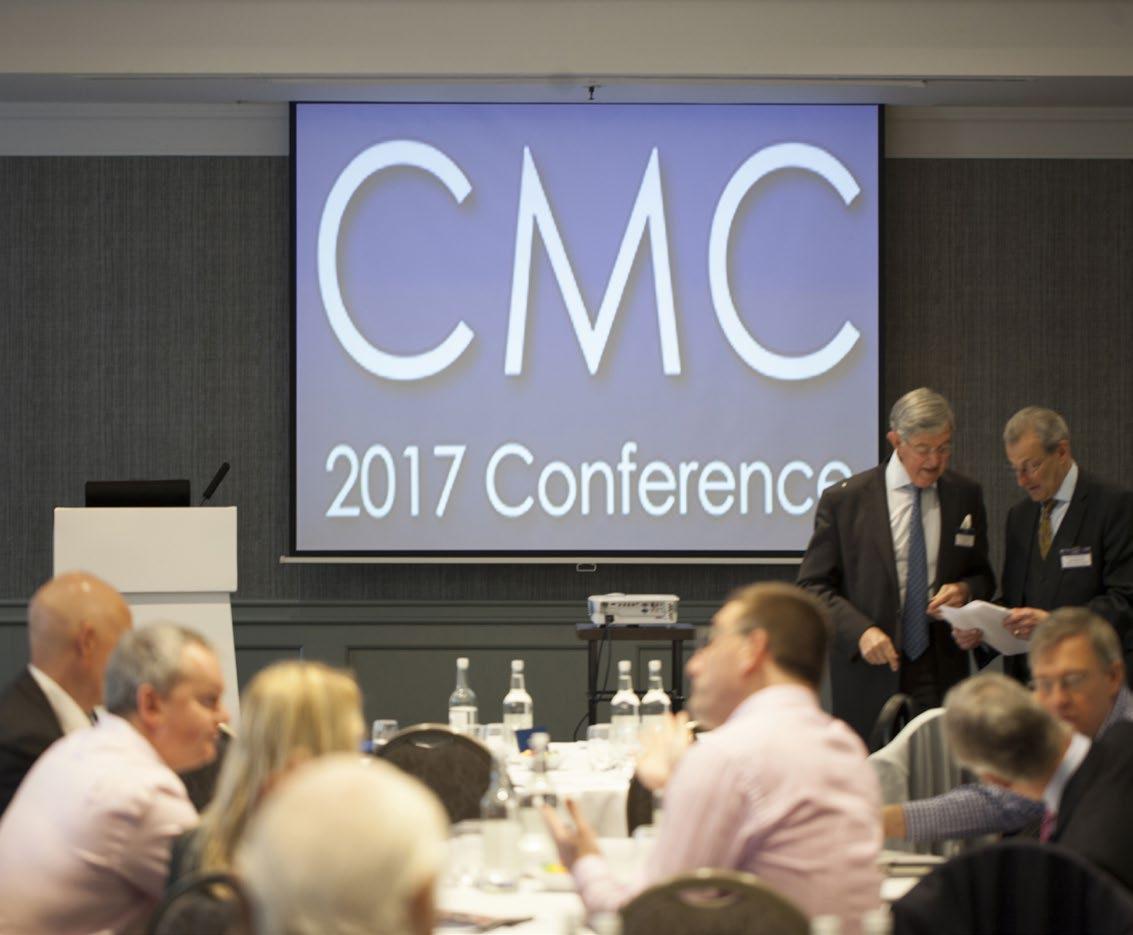
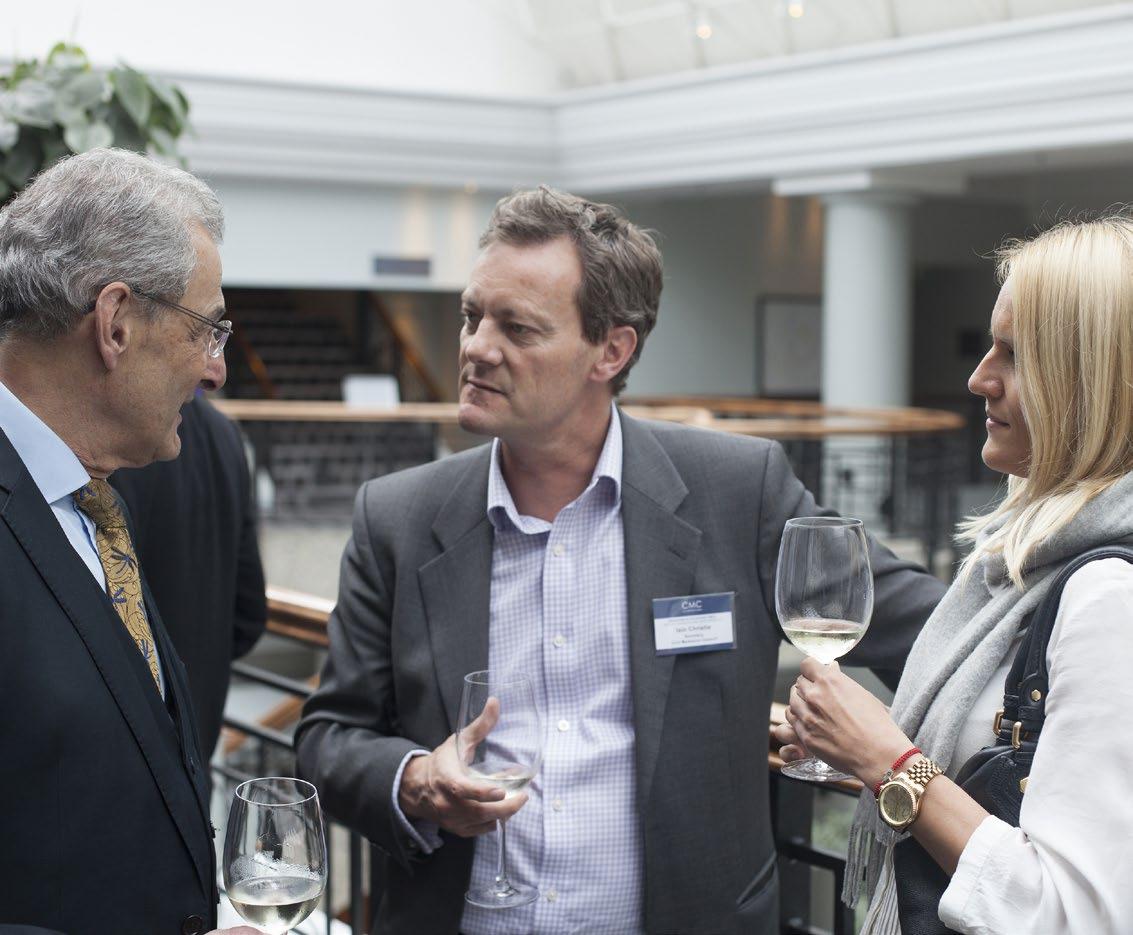

Could there be anything more dry and boring than mediating over Costs? Far from it, it seems. This workshop, thoughtprovokingly presented by Deborah Burke, was said to be lively and stimulating. Deborah pointed to the divergent perceptions of clients and their lawyers, as to whether or not the legal fees were “value for money” – 30% of lawyers thought “yes” and only 8% of their clients agreed! And how could anyone run up pre-action costs of £525,437? Apparently, Cliff Richard did in his litigation with the BBC over reports naming him as a suspected sex offender. This was just one of Deborah’s instructive examples in her well-received workshop.

Those of us dinosaur-like technophobes might have feared that Charles Sowden’s talk would be yet another jargonfilled put-down, by some geek reprimanding us for all the things we should be doing on social media which we are not doing, and which kids a quarter of our age are doing all the time, and which are sooo simple to do, and why aren’t we doing it. Some of us have OD’d on ODR, and believe ‘online platforms’ are the yellow lines on the Underground – and where the announcement “Mind the Gap” refers to the cavernous void in our knowledge of social media. Thankfully, the only jargon mentioned in Charles’s excellent presentation was SEO (no, not Senior Executive Officer, but Search Engine Optimisation). Charles navigated us expertly through the often bewildering array of options before us, with some helpful practical tips on what we should do the moment we got home.
Stephen Ruttle was the 11th hour “Popinjay” – a most admirable substitute for Bill Wood, who was obliged to pull out at the last minute. Instead of a legal update, we were delightfully entertained by Stephen’s account of his journey from a mercenary to a major to a midwife – all metaphorically speaking, of course. Dealing with “difficult conversations”, he left us with a difficult-to-forget picture from a video clip “Its Not About The Nail”, as well as a haunting image of 50 church people locked in a room for 3 days to talk about God and Sex.
The day would not have been complete without Sir Alan’s inimitable concluding remarks. He thanked Amanda Bucklow and Colin Manning , and most importantly “Miss Bossy Boots” Melanie Vasilescu , all of them the collective sine quibus non of the entire event, for their tireless, generous and unstinting contributions. Finally, with his matchless political correctness, Sir Alan made the de rigueur reference to LGPT – let’s get pissed tonight!
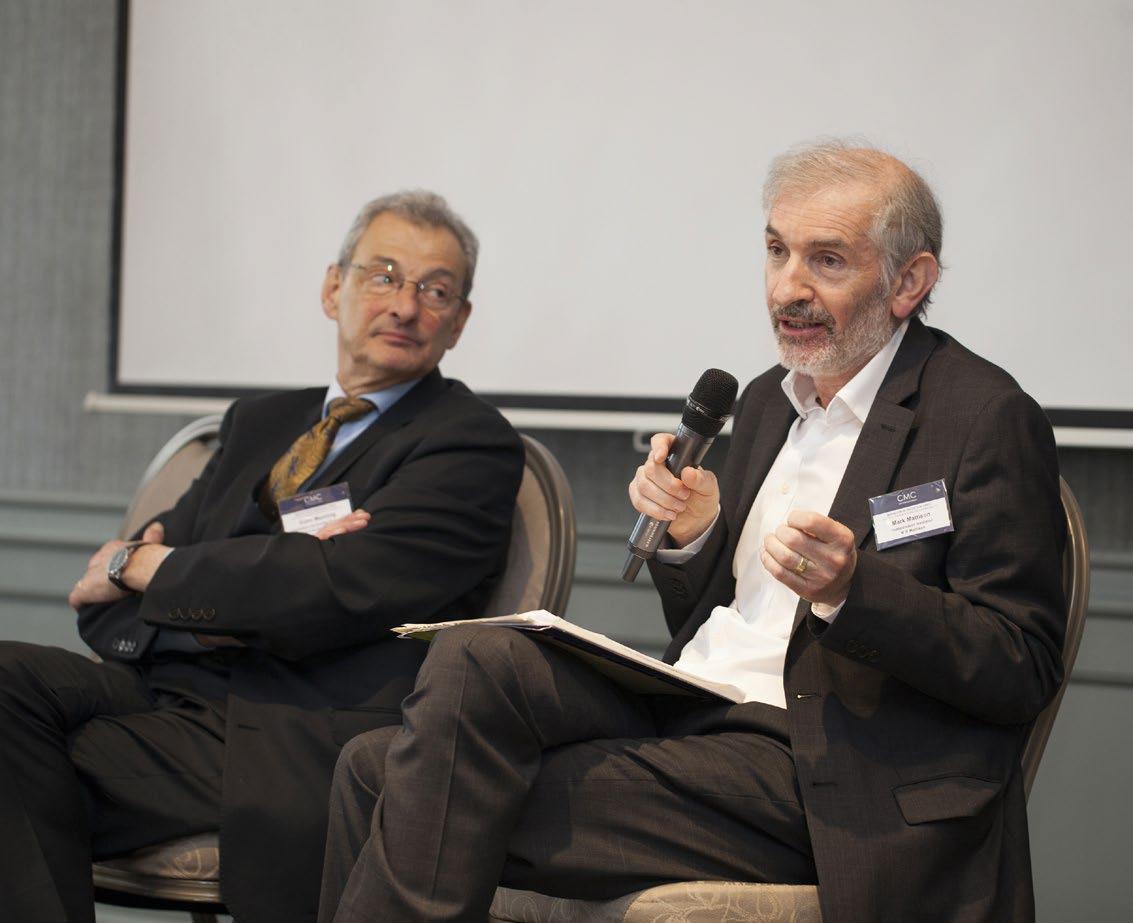
“Fantastic and energetic event, full of interesting and engaging HR colleagues and Benefit providers.”
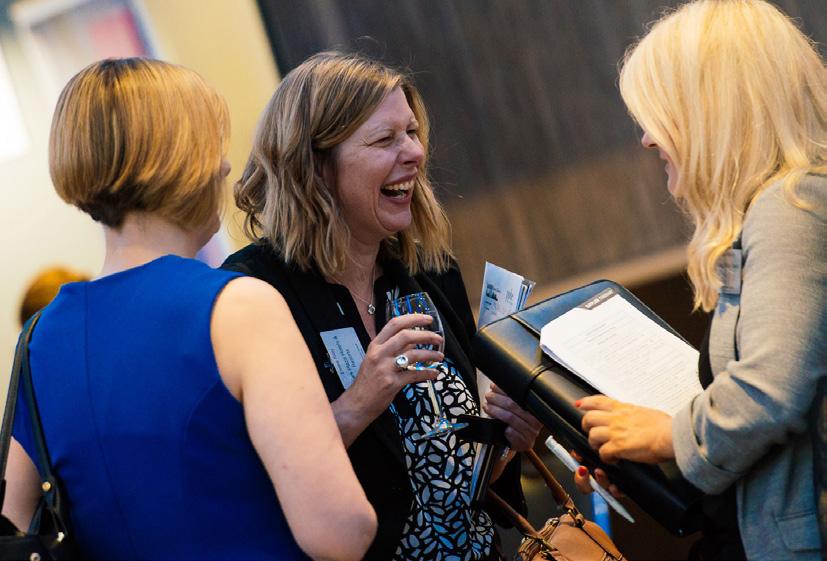
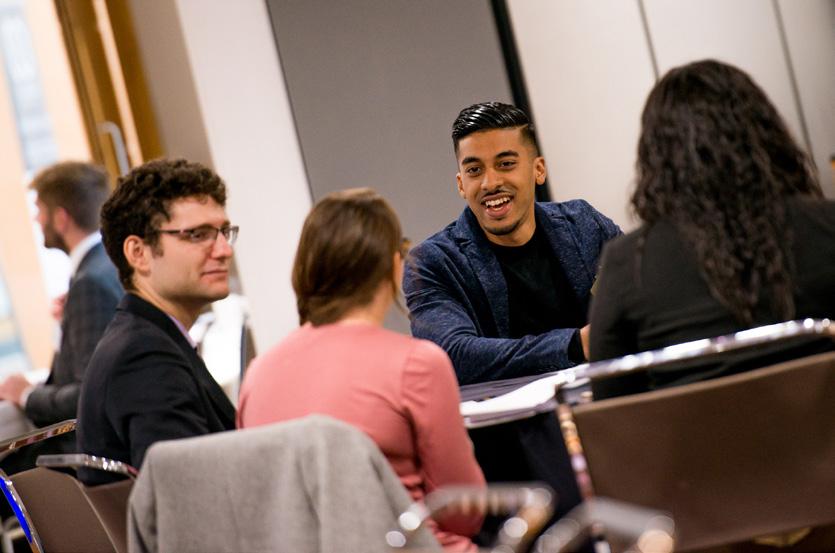
Fortnum and Mason
“An easier way to gain an overview of services and providers. Much better than exhibitions.”
























































































 By Tania Coke, Senior Mediation Consultant, Consensio
By Tania Coke, Senior Mediation Consultant, Consensio







Witnessing British politics of late has been a stark reminder of the dangers of polarisation. In the EU referendum, an immensely complex issue was reduced to two choices: Remain or Leave. In the recent General Election, the entire political spectrum seemed to shrink to two political positions: Tory or Labour. Mediation theory tells us that when issues are polarised, the quality of communication suffers. And when the quality of communication suffers, the outcome of communication suffers too.
Polarisation is part of the fabric of western politics, and Britain, with its tradition of two-party politics, is no exception. The two-party system has many advantages. But we should not be scared to search for something better. The sheer weight of the issues that currently face us – most obviously Brexit and the global terror threat – provides reason enough to rethink the way we do politics. As it happens, politics is already in a state of flux. The pundits were at a loss to predict the outcome of elections in the UK and USA. In France, a fledgling political party won a strong majority in parliament. All this upheaval may be the perfect cue to do some blue sky thinking.
Imagine UK politicians from across the political spectrum coming together to discuss one of our most pressing issues –say Brexit. Suppose the conversation began with the participants sharing their perspectives as if they were artists rather than politicians. In art, self-expression is not a competition. So in this alternative Brexit convention, each person’s contribution would be treated as equally true and equally important. The participants may prefer one perspective over another, but they accept that each person brings a unique perspective which is worthy of attention.
Another feature of artistic expression is that it makes use of a range of faculties, including intellect, emotion, imagination, intuition and body. It acknowledges the existence of doubt, it draws on metaphor, it knows a thousand shades of truth. In political debate, we tend to act as if human beings are nothing but their intellect. We acknowledge the power of emotion and body language, but grudgingly, as if they were cheap tricks. But the politicians in our alternative Brexit convention would have both the skill and the courage to express themselves through more than verbal logic, thus bringing greater depth to the conversation.
Through this kind of exchange, participants will get to know one another beyond their surface positions. A sense of shared humanity will begin to emerge. In the next stage of the
conversation, they deepen their understanding of themselves, one another and the issue of Brexit, through questioning and analysis. Here it is the workplace mediator’s skill set that is most valuable. Participants ask one another questions not for the sake of setting traps or winning points, but in order to open up their courageous conversations to even deeper levels of understanding. They use the skill of reflection to repeat back to one another what they have heard, both to confirm their understanding and bring to light any misunderstanding. They are building trust and gaining new insights. Relationships are deepening. They may even start to like people whose opinions they dislike, because they have a sense of where those opinions come from.
Now they are equipped to begin the third stage of the conversation: to make decisions and plan actions. This stage will never be easy for complex issues such as Brexit, but as any mediator will tell you, it is a hundred times easier if preceded by the kind of exchange described above. There will be more goodwill in the air, more information on the table, hence more conflict resolution options to choose from and more room for creativity in designing a way forward.

Our current culture of polarising political issues comes at a cost. We risk losing sight of the myriad perspectives on the myriad issues that lie hidden beneath the surface of debate. We risk robbing ourselves of the opportunity to gain understanding of ourselves, one another and the issues, by sharing our deeper thoughts, feelings, values and doubts regarding the biggest issues of our time. And we risk diminishing our chances of finding better solutions to our most pressing political issues. Now is a good time to search for new ways to approach politics. Mediation and the arts would be two good places to search.
For further information on mediation and conflict management, visit: www.consensiopartners.co.uk









Your membership means we can do more, faster. In 2017 your contribution will be used to:
• develop, host and maintain the website as the first port of call for information on mediation for individuals and organisations
• organise educational events for different sectors
• organise the CMC Conference to make it accessible to practitioners and end users across the full spectrum of mediation
• to promote mediation as the first resort through essential marketing and communications activities
Membership £90
Registered Mediator (inc membership) £180
Member of Registered Mediation Provider panel (inc membership) £120
Individual Mediator (prices inc VAT) Training Course (prices inc VAT)
Register your Foundation Training course - applicable to organisation members only £300

Organisation Membership (prices inc VAT)
Mediation Provider/Corporate/Company/Trainer £300
Registered Membership £600 - or £300 upgrade for current organisation members
Young Mediator/Professional (under 30 years, for maximum 2 years) (prices inc VAT)
Membership £30
To find out more about joining the CMC scan the QR code or visit civilmediation.crg/join-cmc

To enquire about membership contact: registrar@civilmediation.org
When choosing a mediator or mediation skills training provider, make sure you choose one that is CMC registered. You can search our membership database or verify registration at civilmediation.org/members-search.php
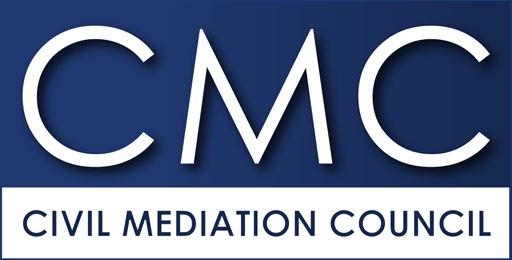
 By Amanda Bucklow, Chair, Communications Committee, CMC
By Amanda Bucklow, Chair, Communications Committee, CMC


Adecision in a costs case handed down earlier this year, Savings Advice Ltd & Anor v EDF Energy Customers Plc [2017] EWHC B1 (Costs) (17 January 2017), prompted me to revisit the importance of the without prejudice and confidentiality provisions in mediation. They are two of the main pillars of the process, essential elements of why mediation works so well and they are universally taught as the core skills for mediators. Occasionally, they are treated as the same but they are not.

There are two lenses through which confidentiality and without prejudice can be viewed and to my mind they are both equally important. The first is the right of the courts to access information considered essential to the administration of justice. It is therefore in the public interest that factual information cannot be suppressed simply because it is inconvenient to one side. As part of his decision in the case, costs judge, Master Haworth said “It is important to separate out the obligation of confidence from privilege. If the obligation of confidence is broken it may give rise to a remedy in other proceedings. However, in my judgment it cannot be used to suppress relevant information in an assessment relating to the costs of the substantive claim.”
The second lens is how confidentiality and without prejudice supports the use of mediation because it assists parties in exploring possible solutions. That is equally in the public interest because it encourages early settlement and reduces the pressures on court time. There will always be a tension between the two which should not be ‘eased’ without careful consideration of the consequences.
Mediation is a very successful process. The outcome of a mediation is without doubt determined by the quality of information and the willingness of parties to exchange information in an environment of trust and confidence. The courts should be very wary of undermining that trust and confidence in the interests of appropriate and speedy resolution of disputes.
Effective confidentiality provides a safe environment where parties can explore options for settlement. If a mediator is obliged to start the mediation with a lengthy session on confidentiality, for example by having to enumerate a long list of exceptions and getting everyone to sign their agreement to those, then the tone of the mediation will be sabotaged and mediation as an appropriately protected alternative environment for dispute resolution will be undermined The place for clarifying what “confidential” and “without prejudice” mean and the exceptions that already exist, is during preparation for the mediation.
Confidentiality is about privacy and the control of information. Without prejudice is about making concessions or admissions in the interests of finding a solution without fear of reprisal in the event that there is no agreement. The control of information, in both formal and informal dispute resolution processes, shapes the quality of the outcome. Relaxing control enhances the chances of an early negotiated settlement and depends to a significant
degree on the trust established between the parties, their advisers and the mediator.
Parties usually start cautiously and it is their experience during the early stages of the mediation, stimulated by reciprocity, that encourages them to take considered risks. We should remember that disclosing information is more than a tactical decision. It is also an emotional decision based on the quality of trust established and with the intention of moving the ‘discloser’ into a position of advantage. Information is traded at least as much as concessions are during a negotiation. The negotiation is underpinned by a delicate dance of reciprocity which in turn needs to be carefully choreographed by the mediator for the benefit of all.
Confidentiality and without prejudice bind the essential mixture required for creating choices, assisting in risk assessment and meeting needs and interests. I trust that the decisions of the courts will continue to support that mix in recognition of the role it plays in getting the job done. Mediation is part of the litigation landscape and not an alternative therapy.
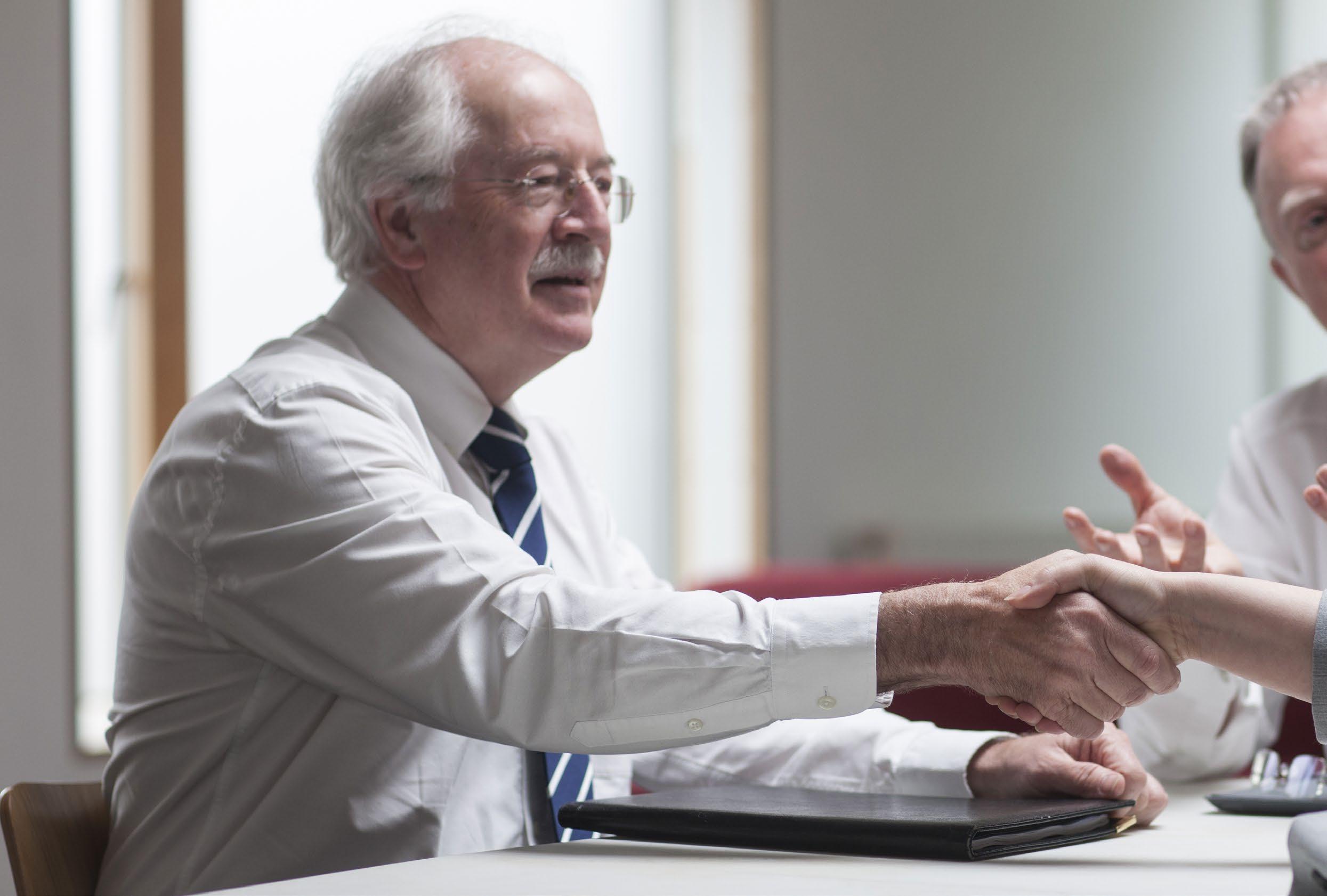


“It was the simplicity of taking a step back and being ok with saying we got it wrong”.
These words from a senior HR executive summed up the way in which she viewed what had been a tough mediation day.
In an intriguing several hours, we had seen and heard that senior person use the formula AARREE** so well: “we accept that there are two sides to this story”/”we acknowledge that this is not personal and that you were doing your job, which was not easy within the system we had”/”we recognise the impact on the business and on you”/we want to reassure you that, if this can be resolved, this will be an end to the situation on our side”/”let me explain that I genuinely believe we were trying to do things properly and not deliberately trying to do harm”/”being completely transparent with you, we need to do x”.
More specifically, she had spoken from the heart: “I am finding this really hard; you have had an extremely poor experience as our employee. I get that and I’m sorry. Today, you have taken us to a completely different level and I thank
you for that. I have been afforded an opportunity to understand. I take what you say at face value. I am not trying to defend the business because I don’t have any defence. We need to learn from what we got wrong. We need to take the opportunity to do things differently. We need to find a way through so that you can move on.”
The employee’s response was from the heart too: “Speaking to the mediator made a difference to me. It was nice to speak to someone who is not my friend or my partner and is independent and who was listening. It was like a breath of fresh air. And I felt a great relief when you apologised. Your assurances about making changes have given me a sense of hope that the issues are being taken seriously. If I can move forward, I will feel better emotionally and physically. I will have freedom.”
For many of us, these will seem like risky things to say on both sides. But the thing about mediation is that it provides a forum for taking these risks. And for reminding ourselves that the alternative to doing so also carries risk, often more
substantial and less controllable. We cannot abdicate making choices about risk. We can only work hard to find ways to deal with it more effectively. That is what had been done in this difficult matter.
The theme of taking responsibility arises again in this further mediation example:

“We have had an opportunity to talk about what happened. We have both acknowledged that we should not have said what we said to each other back then. We can move on. But we also realise now that the main reason for our confrontation is the sheer stress we are being put under by management. They don’t understand how the department works. They don’t appreciate the value of what we do. There have been a number of changes in structure and it’s all about saving money. Or making money. But, if we didn’t do our research, the money would not come in. It takes time to do what we do. We are not moving widgets around and we can’t just be judged according to the number of student places we fill. It’s taken a year to get the grant reapplication filed. I went to the office and sat with the new person and we got it all done in three hours. But that is not my job!”
Another heartfelt plea for understanding, and a clear explanation of the dawning realisation that the head to head issue (the presenting “conflict” in the mediation) was actually only a symptom of a much broader set of concerns. Obvious,

perhaps, in hindsight but not when you are in the heat of things. It had taken a facilitated series of meetings to unpick the reality of the underlying problems and their impact. The two protagonists (themselves very senior specialists in their respective fields) had then met in private to summarise their learning together. Now, on the wider issues, they presented a united approach to the management of the organisation.
Fortunately, the mediation had been set up in such a way that two members of senior management were present to hear what was being said. The response was unequivocal:

“Thank you. I hear what you say. I have to accept that the policy on departmental financing has created real difficulties. I’m really sorry you have been through this. I have been tasked to look at this over the whole institution. One thing I want to be clear about is this. What you do is world-leading and we value it enormously. It is difficult work and often very lonely. We need to find ways to appear more supportive. I’m glad that the application process is sorted this time. We need to make sure we have the right system in place so that this does not happen again. What do you suggest?”
This was a model response. Listening, accepting, acknowledging, apologising, reassuring, clarifying, explaining, exploring, inquiring. Critically, it had all been expressed with genuine authenticity. And all in one short statement. It seemed mostly intuitive. But, actually with a lot of thought and awareness, it was adding real value at the margins, with points that made a big difference to the two members of staff.
But, of course the proof of the pudding is always in the eating: One player in a similar situation commented: “I hope that the tension between my colleague and myself will now be resolved, but I’m less optimistic about the wider structural issues!” This points to the reality of these types of conflict, which are not one-off transactions for most organisations. There is a need for perseverance, follow through, resilience, hard work, institutional commitment and reflection. Above all, implementing the outcomes requires really skilled leadership, which can be learned.
**to learn more, join us on Core’s residential Summer School for leaders, advertised elsewhere in this magazine! www.core-solutions.com
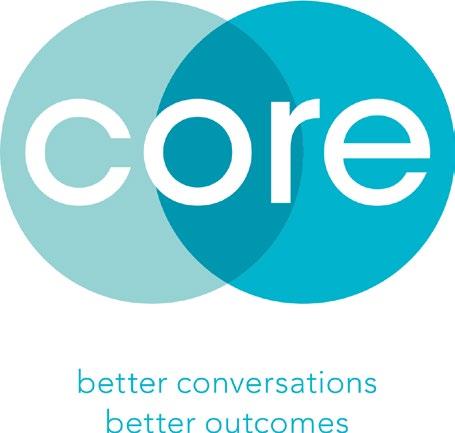

Conflict at work is a costly business. It can happen in any workplace. Differences between individuals at work can lead to grievances, absences and loss of valuable employees.
Mediation helps people who don’t see eye to eye to sort out their differences as quickly as possible and so minimise distress and cost.
The Acas Certificate in Internal Workplace Mediation draws upon decades of Acas experience in handling workplace disputes, grievances and conflict.
This fully accredited course equips your managers with the skills to become effective workplace mediators, helping to reduce conflict, increase productivity and re-energise employee engagement in the workplace.
As the former Head of Litigation of two erstwhile banks, I attended numerous mediations as the client party. Now as a full time mediator, I make it a priority in my mediation preparation to try to speak to the client – not instead of, but in addition to the client’s legal representative. Why? Put simply, because mediation is a client led process.
It is often assumed that commercial mediation is less emotive, less pressured than family or workplace mediation. Sometimes this is undoubtedly the case; but not all of the time. Parties to a commercial mediation can feel under immense strain. This may be obvious where a party has a personal investment in a dispute: a disputed invoice, professional negligence or breach of warranty claim can have a very significant impact on a sole trader or small business’s reputation, cash flow and long term financial position. However, it can also apply to representatives attending mediations on behalf of very large organisations: after all they may have lived and breathed this dispute for many years. They may have investigated it, advised upon it, reported upwards and obtained mandates in relation to it and have consequences stacked up behind the outcome of a dispute. Commercial parties can and often do become very personally invested in a dispute.




One of the reasons why mediation is so effective is that it can be very empowering for a party: particularly where there is high emotional investment. In a complex legal dispute, the vast majority of correspondence and conversation takes place between solicitors. At a trial, the conversation usually takes place between a barrister and a judge. The party may be called as a witness, but in a highly controlled environment where questions
are asked and answered, usually as shortly as possible. Mediation, on the other hand, should be a conversation between parties. It is an opportunity for parties to say what they want to say about the dispute in a without prejudice and confidential setting. Importantly, it is also an opportunity to listen to what the other party is saying directly and without any filters. The benefit of this conversation, together with the realisation that the other party is human (at least in the majority of cases), often with views as equally strong as your own, is that it allows everyone to assess risk. And in my view, this is what leads to settlement.
So why do I want to speak to the party, as well as the legal representatives? I want to put the party at ease and address any concerns that the party may have about the process, the day and the preparation. I want to get a heads up on any emotions which may arise during the day, so that I can prepare properly (and prepare the party if appropriate). It is extremely useful for a mediator to get any insights into the drivers which might impact on negotiations during the day and of course all those insights are given within a comfort blanket of confidentiality. Fundamentally, I want to put the parties in the best possible position to have those empowering conversations so that the mediation has the best possible chances of success.
My advice as a mediator and former client is to have these conversations with your mediator. My preference is to have them before the day, but if this isn’t possible, have them on the day. Make the party the focus of the preparations and who knows –there may be cocktails and canapés all round after all.

It’s all about the party... But not of the cocktails and canapé variety – or at least not this time.By Rebecca Clark, Mediator, In Place of Strife LLP
 By Paul Rose, FCIArb
By Paul Rose, FCIArb
Mediation training tends to follow one of three models: facilitative, transformative or narrative.
With the facilitative model, mediators are taught to actively listen, reflect and summarise. On the one hand, this helps parties to feel more certain of their positions. On the other, it gives each party the ability to recognise the position of the other and empowers all those around the table. But does it help the parties to find a clear solution to their complex problem?
In transformative mediation, empowerment and recognition are key to enabling the parties to feel confident enough to engage in a meaningful discussion.
Narrative mediation, is a middle ground between transformative and facilitative mediation. In this style of mediation, the narrative and background to the disputants and how their stories unfold or could unfold are key. It is a model based on how backgrounds shape and form the parties in their attitudes to disputes. Dr Camaron Thomas discusses the practical applications of this model in her book ‘The Wisdom of the Brain: Neuroscience for Helping Professionals’. She says: “Beneath our everyday mind patterns lies a set of expectations we each carry around with us about the world: rules about how things should happen.” A mediator with an understanding of the cognitive function can therefore recognise such inbuilt values and work with parties to address preconceived notions learned in parties backgrounds to help them re-think their situations and place the conflict in context. That adds value to the process. In all three models, the mediator engages with the parties, encouraging them to seek a solution where neither party is able to find one.
In commerce, time is a precious commodity, even more so for parties needing a positive settlement, so they can spend more time and resources on the growth of profits and assets. This means commercial disputes need to engage in a model where the time to find a settlement is reduced. The time spent fighting a dispute is a waste of valuable resources.
The growth and use of the fourth model, evaluative mediation, is one where a skilled mediator can add real value to the process and also to the settlement.
One of the great advantages of mediation lies in the wide selection of solutions to disputes; over which a Court has no jurisdiction. A Court can order an apology in a case of defamation but not any other course of action. Courts can order damages for breach of contract or liability. They cannot order additional
supplies at a substantially reduced price; or the provision of a different range of goods over an extended timetable.
Thus, mediation presents a blank canvas for a skilled mediator, providing them with an opportunity to use their skills in not only teasing out potential solutions from the parties themselves but to suggest alternative avenues for exploration by the parties. In litigation, a Court is restricted to two basic remedies – monetary damages and restitution where possible. Outside of litigation, mediation can provide a far wider choice of solution and at a much cheaper cost than proceeding before the Court. It is here that a mediator can help unlock a negotiation to add value to the process.
However, if considered from a literal sense, a skilled mediator can add value if permitted to use the evaluative model and the more so by either drawing parties’ attentions to a range of alternative solutions; or, through the evaluative process helping the parties to better understand their likely prospects of achieving their Best Alternative to a Negotiated Agreement (BATNA).
Finally, if permitted a Mediator can add value by making a Mediator’s Proposal. That is a suggestion of where the Mediator thinks the dispute might settle. He or she then puts the proposal to the parties and if both parties agree, then settlement is reached. If one party disagrees, then there can be no settlement.
These days we understand so much more of the role played by what we know as cognitive or implicit bias and its effects on behaviour in negotiations. A good mediator will need to understand this really well as he or she works with parties to help them reach really good outcomes.
The forthcoming Chartered Institute of Arbitrators annual Mediation Symposium on Wednesday 27th September 2017 is hosted by Ashurst LLP in London and will be delving into the issues touched upon above with a view to exploring how we can add more value to the process.
For event enquiries please contact Primrose Ante-Bennett on +44 (0)20 7421 7427 or email PAnte-Bennett@ciarb.org
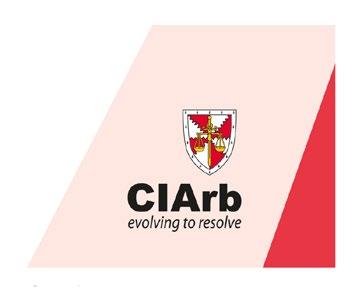


Independent Mediators Limited is a group of leading, full time commercial mediators whose independent practices are centrally managed. The company operates both in the UK and internationally.
Independent Mediators (IM) was formally launched in June 2007. We operate as a mediation chambers. All the mediators work full time as mediators and are only appointed through Independent Mediators.

Our chambers consists of Charles Dodson, Phillip HowellRichardson, Kate Jackson, Michel Kallipetis QC, Jonathan LloydJones, Mark Lomas QC, Bill Marsh, Andrew Paton and Nicholas Pryor.
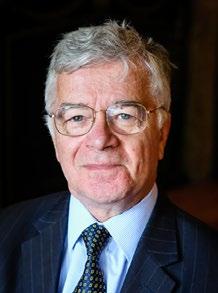




When forming IM our aim was to make the process of instructing mediators simpler and to recognise and to meet the requirements of instructing solicitors and individuals. We are very conscious of the need to provide a competitive service and are recognised as offering exceptional value for money. We make the country’s top mediators available at affordable prices for any size dispute. We do not charge any admin fees to the parties.
Only mediators recognised by the leading directories as being in the top tiers of UK mediators are invited to become members of Independent Mediators. We are unashamedly “elitist” offering some of the best mediators in Europe. We will never offer an inappropriate mediator for any instruction.

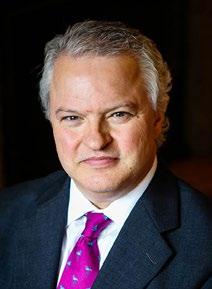
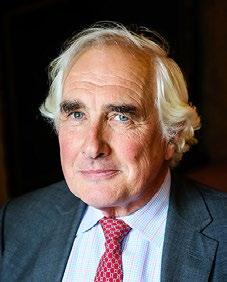
The concept has worked extraordinarily well. Instructing solicitor’s feedback shows that not only was our business model correct but that the quality of the mediators’ performance and the administrative service that supports them has probably exceeded expectations.
The number of mediations per year has consistently increased since our launch and now numbers 500+ per year. Since we launched the group we have received in excess of 4200 appointments.
The parties to cases IM members mediate range from litigants in person to multinational companies; with sums claimed from £25k to multi billion.

Appointments are received from a broad range of sources including, top ten City firms, international law firms, regional and high street practices, increasingly from in-house lawyers, government departments, security services, local authorities, police forces and litigants in person.
The subjects mediated to name a few categories cover all aspects of commercial/financial services/banking/employment/ professional negligence/regulatory/class actions and insurance disputes.
Our appointments are increasingly from international sources with the number growing each year. Instructions from lawyers, clients and governments along with training and consultancy means our mediators have worked with over 85 countries worldwide. Following the implementation of the European Mediation Directive we took the decision to recognise the mediators experience and to offer our services to a wider audience who may wish to take advantage of the combined expertise in the growing areas of International/Cross Border/Multiparty disputes.
Our international presence has been identified by the international directory Who’s Who Legal: Commercial Mediation. They acknowledge IM as a leading mediation chambers recognised for the excellence of their specialists.

“The mediator listened to our client’s concerns and grievances, but also helped us focus on important issues to achieve settlement”
“The mediation was very helpful in re-establishing trust between the parties”
 Butterworth Family and Civil & Commercial Mediator
Butterworth Family and Civil & Commercial Mediator

 Michael Butterworth Civil & Commercial Mediator
Michael Butterworth Civil & Commercial Mediator


Small businesses are tying up a staggering £12.4 billion in commercial disputes each year, according to figures from The Federation of Small Businesses (FSB) . Firms across the commercial sector are being caught up in disputes –with seven in 10 of the FSB’s members experiencing at least one dispute between 2010-15.
Once a dispute gets underway the impact can be catastrophic for companies. All aspects of a business can suffer:
• Cash-flow
• Reputation
• Customer relations
• Stress and distress
• Loss of productive time
Being good in business does not necessarily equip you to fight your corner in a dispute. In our experience for many this is uncharted territory. Often owners know their business well, but not the law and its process. They may contact their local high street solicitor or go to the CAB for help. Advice to seek the services of a mediation dispute provider, such as Mediated Dispute Solutions, in most cases, will work out cheaper and, more crucially, quicker than the alternatives.
The average disputeii has a value of £18,000 and the cost of settling each dispute is estimated at £17,000 and that is excluding the unseen costs of key directors not being ‘hands on’ in the business. Income is only generated when key players are physically working.
Mediation has a role to play in encouraging the quick and low-cost resolution of disputes. At Mediated Dispute Solutions, we have often found that when those involved try to sort out the dispute it can have unwelcome side-effects:

• showing gaps in complaint handling techniques;
• dents in service reputation;
• making them fear being a push-over; or
• labeled as uncaring and hard-nosed.
Often, they don’t have knowledge or easy access to relevant legal advice. When they do seek legal advice, they believe going to court is the only option. Lawyers can explain that mediation can have a role both before and after proceedings. We have found when people know about mediation they want to give it a try. Mediation offers them the fast, practical solution to solve the issue or dispute. More importantly, it can preserve the valuable business reputation and relationships that build businesses.
A call to Mediated Dispute Solutions is answered by a mediator who can give information and discuss individual needs whether
a customer, supplier, sole trader or director. Most mediations, from first enquiry to settlement, take only 3-4 weeks. This helps with customer satisfaction, cash flow and the minimal loss of time by the key worker or director in finding a solution.
Lawyers can safely refer disputes to Mediated Dispute Solutions, knowing its mediators have specialist knowledge and offer a bespoke service to suit the needs of the parties. Individuals are encouraged to seek legal advice, but the good news for the legal advisers is a fast resolution which is cost effective. It’s win-win for all involved.
Mediated Dispute Solutions Ltd is a small business itself it understands the stresses faced by those running small businesses. It’s a registered provider with the CMC and its directors, Michael and Deborah Butterworth, are registered civil & commercial mediators.
Mediated Dispute Solutions’ emphasis is on small businesses, their clients, their customers and their suppliers. We actively seek out to support the resolution of disputes. We want to help businesses learn from their experience and do things differently; thereby supporting their customer base and their communities.
Contact Mediated Dispute Solutions Ltd

T: 020 7993 6869
E: info@mds.london
W: www.mediateddisputesolutions.uk

There’s a perfect political storm brewing for HR professionals this year in the UK as the result of the general election and ongoing BREXIT negotiations begin to shape the medium to long-term outlook for the employment market.

And to add further uncertainty to the mix, the outcome of the latter is hugely dependent on the former.
Certainly, the minimum wage, national living wage, executive pay, tax, education & skills, employment rights and working conditions are being vigorously debated among the main parties.
Some of these policies will have an immediate impact on HR, while others will play out over time – with opinion on the best approach to BREXIT polarised across the main parties (and ultimately beholden to the EU’s negotiators), the outcome of that will continue to be debated vigorously regardless the result on June 8th.
With all that in mind, the London HR Summit and the Employee Benefits & Rewards Forum represent a unique opportunity for you to meet with industry peers to discuss post-election issues. Both events will feature and extensive educational seminar programme that will tackle the hot topics, while matched meetings with industry suppliers will provide expert advice and enable you to plan for 2018 and beyond.
Up first is the London HR Summit, which takes place on September 25th 2017 at the Radisson Blu London Stansted, while the Employee Benefits & Rewards Forum is on November 6th 2017 at the Hilton London Canary Wharf
Both events are completely FREE to attend for pre-qualified industry professionals.
As a VIP guest, you will receive:
• A personalised itinerary of meetings with HR and benefits solution providers who match your business requirements
• Access to a series of seminar sessions presented by industry leaders
• Informal networking with peers

• Lunch and refreshments throughout the day
• Networking industry dinner with overnight accommodation
Delegates are given a carefully planned itinerary that ensures time spent at the events is worthwhile – they meet, share and connect with businesses relevant to their current and forthcoming projects in match-made meetings.
In short, these events represent a rare opportunity to cover all your HR and benefits supplier needs at once, ensuring maximum return on your valuable time.
Places are limited, however, to just 65 delegates at each event.
To RSVP for the London HR Summit, contact Megan Goode on 01992 374102 / m.goode@forumevents.co.uk or visit hrsummits.co.uk -
To RSVP for the Employee Benefits & Rewards Forum, contact Kelly Barrett on 01992 374057 / k.barrett@forumevents.co.uk or visit employeebenefitsforum.co.uk
Alternatively, you’re a solution provider to the HR industry and would like to showcase your products at either event, contact Frances Lee on 01992 374070 or email f.lee@forumevents.co.uk
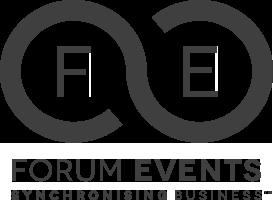


We recognise that an organisation is only as successful as its relationships.
We recognise that an organisation is only as successful as its relationships.
We are recognised in the legal directories as providing high-quality facilitation and mediation services for the widest range of workplace and employment disputes.
We are recognised in the legal directories as providing high-quality facilitation and mediation services for the widest range of workplace and employment disputes.
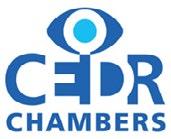
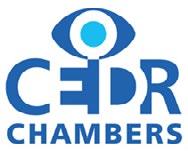
We use practitioners experienced in coaching, mediation and facilitation, negotiation and psychotherapy to maximise your chances of resolution.
We use practitioners experienced in coaching, mediation and facilitation, psychotherapy and supervision to maximise your chances of resolution and preserve relationships in the workplace.

07970 167060 caroline@sheridanresolutions.com sheridanresolutions.com
020 7378 9453

90%+ Mediation success rate Pre and post mediation coaching Mediator supervision Mediation skills for managers Clients include household names in retail, finance and leisure industries
Resolution at Work
Speaker sessions will include:
• Understanding the barriers to implementing mediation
• Raising awareness of workplace mediation amongst staff
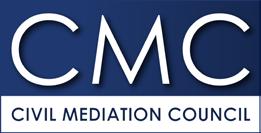
• Encouraging management participation
• Unsuccessful mediations – turning refusal or failure to your advantage

• Proactively addressing workplace disputes
Sponsored by:


Conflict can happen in any workplace. And when it happens it can be costly. Differences between individuals at work can lead to grievances, absence, reduced effectiveness and morale, and sometimes to loss of valuable employees. Mediation helps people who don’t see eye to eye to sort out their differences as quickly as possible.
Mediation is very successful in helping organisations identify solutions to difficult workplace disputes – out of 248 Acas mediations in the last operating year, 89% reached full or partial agreement, we also offer our expertise to train in-house mediators.
Definition:“Conflict may be expressed formally as disciplinary action or employee grievances but also by disagreements and clashes between colleagues and between managers and their staff.”
Managers with responsibility for HR and workplace relations said that...
Overall, organisational conflict is
Mediation usually involves an independent, impartial person facilitating discussions/agreements between parties. It is not prescriptive: parties decide their own outcomes. But what else do we know?
• Mediators are trained in a wide range of facilitation skills, mediation can be used at any stage in a grievance process.
• It is often used to deal with ‘relationship breakdowns’ between employees and/or their managers.
• Acas research suggests that to get the most out of it, you sometimes have to dig a little deeper into personal relationships and dynamics than might be comfortable. One user described mediation as “necessarily traumatic”.
Definition:“Conflict may be expressed formally as disciplinary action or employee grievances but also by disagreements and clashes between colleagues and between managers and their staff.”
*(reported only by large organisations)
22% of businesses said they had experienced some conflict in the past 12 months but conflict is a feature for a sizeable minority with a diverse range of causes.
Nevertheless, conflict remains a feature for many
Managers with responsibility for HR and workplace relations said that...
55% staff disagreements
32% poor performance
Mediation is very popular by those who have tried it (but few organisations do). The Workplace Employment Relations Study 2011 shows that although two thirds of organisation’s written disciplinary and grievance procedures referred to access to mediation only 7% of workplaces had used mediation in the last year. It also showed that the public sector are more likely to provide mediation in their policies than private sector and it is more likely to be available in unionised workplaces.
20% discrimination
Many organisations turn to Acas for help. Our specialist advisers have helped organisations of all sizes and from all sectors resolve disputes. We can also help them to develop their own mediation schemes that meet their needs and to train their employees in mediation skills.
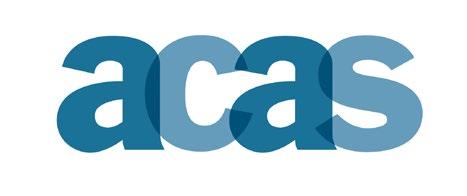
22% of businesses said they have experienced conflict in the past 12 months, with a range of causes
Overall, organisational conflict is
We have developed a training course in response to demand from organisations who have used our services, to help them mediate internally, which is faster and cheaper than bringing in external bodies, and provides the key to successful mediation. Successful candidates will gain the Acas’ Certificate in Workplace Mediation (CIWM) accredited by the NOCN

22% businesses said they had experienced some conflict the past months conflict feature a sizeable minority with diverse range causes.
22% of businesses said they have experienced conflict in the past 12 months, with a range of causes
In a recent case study at Northumbria Healthcare NHS Trust, we found that:
12% unfair treatment
10% violent behaviour
• 9 out of ten mediations resulted in an agreement
10% absence and attendance
• ¾ of those involved said they’d recommend it to a friend
8% pay and conditions
5% bullying
5% redundancy
4% alcohol and drug use
Rare - 92%
• 6 out of 10 managers felt mediation helped improve their ability to manage conflict
3% use/misuse of social media
<1% theft and dishonesty
5%Occasional
3%Common*
One of the problems with mediation is that it is sometimes either used as a default position in situations not suited to it, or as a last resort when all else has failed. Our research and operational experience indicates that the sooner you think about
When conflict occurs, what is its impact? 75% 81%
said it has a negative impact on performance
said it wastes management time
So, is managing conflict a priority?
Fewer small businesses agreed that managing conflict was a priority than medium and large organisations
55% staff disagreements
32% poor performance
20% discrimination
*(reported only by large organisations) Nevertheless, conflict remains a feature for many
12% unfair treatment
10% violent behaviour
10% absence and attendance
8% pay and conditions
5% bullying
5% redundancy
44%
Who manages conflict?
said conflict costs money
4% alcohol and drug use
Small businesses said it was a priority
3% use/misuse of social media
Medium and large businesses said it was a priority
<1% theft and dishonesty
When conflict occurs, what is its impact? So, is managing conflict a priority?
78% 61% 87% of small organisations use line managers to manage conflict
Fewer small businesses agreed that managing conflict was a priority than medium and large organisations
77% of medium sized organisations use line managers to manage conflict
How much time and money is workplace conflict costing your organisation?
We are a leading conflict management and accredited workplace mediation provider. Our comprehensive courses and mediation provision helps to improve employee relationships, increase productivity and reduce the costs and time of formal procedures within organisations.
Our services include:
• Complimentary meditation awareness session
• Internal mediation training
• External mediation provision for two person
• Team facilitations
• Conflict management courses
• CPD mediation days
Don’t let conflict impact your organisation.
To find out how we can help you contact us at info@cic-eap.co.uk or 0207 937 6224

www.cic-eap.co.uk/specialist-services/mediation-and-mediation-training/


Typically, up to 30% of a manager’s time is said to be spent dealing with conflict. But for Bart’s Health NHS Trust in London – the largest NHS Trust in England with 15,000 staff – the introduction of an internal mediation process helped to minimise the impact of managing conflict on this large and complex organisation.
The Trust was created in 2012 following the merger of Barts and The London NHS Trust, Newham University Hospital NHS Trust and Whipps Cross University Hospital NHS Trust and, at the time of merger, consisted of six local hospital sites. The complexity of the merger and the different management structures involved, as well as different working cultures, loyalties and sheer scale and number of changes for staff meant high levels of potential conflict.
Mediation as an approach was first introduced by CiC alongside the existing Employee Assistance Programme, working closely with HR to roll out a mediation training programme. Over time, the new Trust developed an accredited, multi-disciplinary team of internal mediators who could resolve workplace conflict, with the aim of reducing the number of cases being escalated to formal processes.
The Trust’s internal mediators were selected from clinical and non-clinical staff following publicity in staff newsletters, magazines and the Intranet. The adverts outlined the core skills needed from an effective mediator. Applicants were asked to submit a short statement outlining why they would make a good mediator, how they met the criteria of patience and empathy and provide evidence of problem solving and dispute resolution. The consent and commitment of the individual’s line manager was essential.
Internal mediators attended a five-day training programme delivered by CiC, using role play, peer coaching and case study discussion, helping managers identify the most effective strategies for mediation in terms of stabilising short term situations, as well as facilitating harmony, growth and productivity for the longer-term.

The Trust’s calculations estimate that 66% of recent cases that had progressed to employment tribunals could have been resolved by mediation. Yet with the new system, it was estimated the organisation could save more than £200,000 each year in legal fees, as well as the saving of management time (estimated at around 47 hours for each case).
Among managers using the approach in the years since its introduction there has been a high level of success, and those involved agree it’s a positive way of working that has minimised the impact of conflict on individuals, teams and patients.
The Trust also believes the internal mediation service supports recruitment and retention by demonstrating and encouraging a supportive environment, where conflicts are dealt with informally and constructively, and also helps improve productivity levels due to reduced time spent on bullying, harassment and disciplinary cases. Ultimately, staff not distracted by unresolved problems are more focused on their job and the patients. The ongoing challenge, though, is to ensure there is a constant stream of interest in the mediator training programme and a good supply of new applicants and to balance this also work with CiC to offer external mediation support for more complex cases.
CiC’s bank of experienced mediators are all trained in Professional Workplace Mediation, accredited by the Mediators Institute of Ireland. We work in the public and private sectors, with schools and universities, law firms, local councils, care trusts, international news agencies and international charities. We offer a range of services, including complimentary mediation awareness sessions, internal mediation training, external mediation provision, team facilitations, conflict management courses and CPD mediation days.

Go to www.cic-eap.co.uk/specialist-services to find out more.
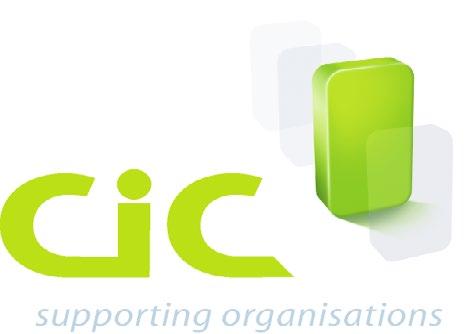
Clive Lewis OBE DL is one of the UK’s most influential and sought after workplace and employment mediators. He was one of the UK’s first HR Professionals to gain accredited mediator status with CEDR. He is the author of thirteen books and is currently the UK’s most published author on the topic of mediation in the workplace. He has mediated more than 400 disputes and has advised Governments including Algeria and Jordan. Clive was a Board member of the Civil Mediation Council for 6 years. The council advised UK Government.
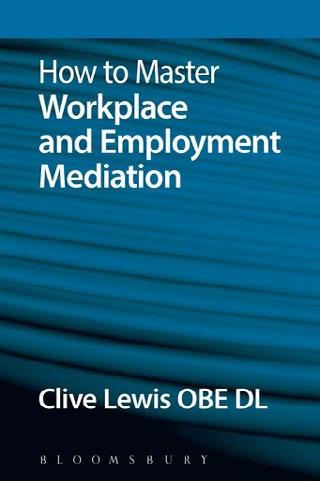
Clive is a Business Psychologist and founding director of Globis Mediation Group.
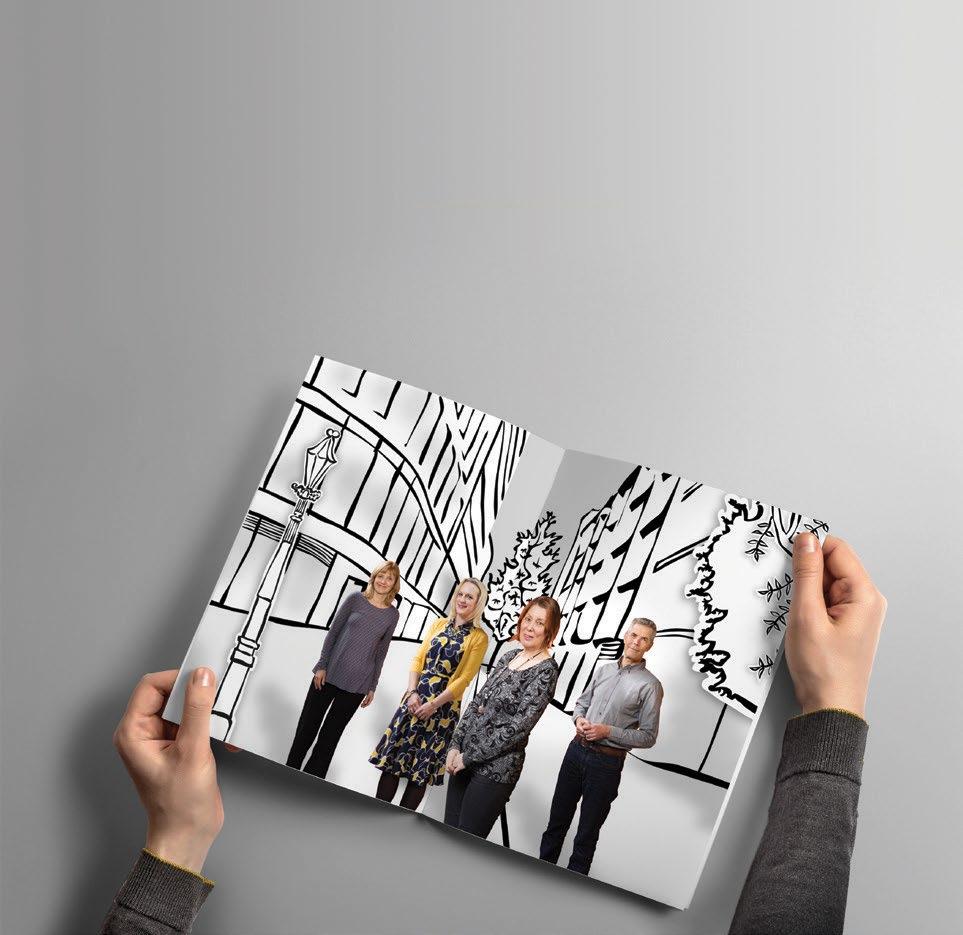
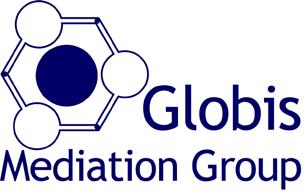









 By Fiona Colquhoun and Andrew Fiddy, CEDR
By Fiona Colquhoun and Andrew Fiddy, CEDR
An increasing number of people are directly or indirectly impacted by mental health issues and these can affect us all in one way or another, whether personally or professionally, at home or work, through friends or family. For Mental Health Awareness week in May 2017, CEDR brought together cross-industry mediators and other experts to explore mental health and well-being issues in the workplace and how mediation could be used to manage and resolve workplace disputes with mental health issues

According to the Mental Health Foundation, at least one in four British adults will experience some kind of mental health problem each year, with anxiety and depression being the most common. More broadly, one in six working UK adults experienced episodes related to a common mental disorder in the past week. To put this in context, as reported by the Institute of Directors in a study on Mental Health, that is 10 times the number of people who attend professional football matches every weekend. An episode can manifest itself in: depression, stress and physical symptoms, for example, migraines and other forms of sickness. It can strike at all organisational levels from the most senior person to those with less significant responsibilities. The business case for workplace interventions is compelling. The cost to British employers of mental health-related issues has been estimated at £26 billion per year or, on average, £1,035 per employee (Chartered Institute of Personnel and Development (CIPD) Managing And Supporting Mental Health At Work Disclosure Tools For Managers, 2011).
With many of us spending up to 60 per cent of our waking hours at work, many psychological stresses can emerge in the workplace. The Workplace Wellbeing Index created by the charity Mind UK, involving 15,000 employees from 30 organisations, found that 26 per cent of employees describe their mental health as poor and attributed it to work related issues. However, of those individuals who had disclosed poor mental health at work (2,200 employees), only 53 per cent said that they felt supported, yet 73 per cent of managers said that they would feel confident in supporting a member of staff experiencing a mental health problem. This discrepancy is concerning. If these issues are not prevented or effectively managed, they can have a severe impact on individual, team and organisational performance and productivity.
In that context, one of the principle reported issues is the emergence of costly and time-consuming conflict at work. The CIPD Employee Outlook Survey (2011) said that stress is now the number one cause of long-term absence (categorised as four weeks or longer) for both manual and non-manual workers and the second biggest cause of workplace conflict (after personality clashes).
The impact of conflict at work is striking and is often regarded as beyond the capacity of management or the individuals involved to deal with. On average, the CIPD estimates that employees spend on average one day per month dealing with conflict and 37 per cent of those with poor mental health reporting that it had affected their performance as a result of being more likely to get into conflict with others.
There were interesting conclusions from our recent event. Together with approximately 40 participants from the public, private and charity sectors, a panel of Mediators, Mind UK and Mishcon De Reya, exchanged views on the following topics and these are summarised below.
The creation and nurturing of a conflict competent and supportive organisational culture is critical to prevent destructive and manage constructive conflict. This can partly be achieved through designing and implementing appropriate policies and processes to ensure early diagnosis, and thus timely intervention, to identify, prevent, manage and resolve sources and issues of conflict. What is also required is to improve communication and collaboration amongst employees, facilitated by appropriately skilled managers who are themselves trained to sensitively manage challenging issues so as to effectively prevent, manage and resolve conflict. This in turn, supports positive professional and personal relationships critical for individual and organisational performance. Examples of this can include the establishment of peer support networks, workplace ‘buddying’ schemes and access to employee assistance programmes. Mediation can have varied and creative outcomes. One panellist highlighted a past case concerning a highly skilled engineer who, while technically excellent, struggled with the
management aspects of his role, causing him stress and anxiety. The stress and anxiety he was feeling affected his ability to earn bonuses and impacted heavily on his morale and, in turn, that of his team. After organisational support, relevant training and problem-solving activities had had little effect, mediation was proposed.
Mediation offered the employee the opportunity to voice how he was feeling in a confidential and safe environment with his employers. Facilitated by a third-party neutral using a clear framework for exploring different forms of finding resolution, the engineer and his employers managed to find a position for him that capitalised on his talents whilst removing stress-inducing management responsibilities. He and his colleagues went on to be one of the highest performing teams in the organisation.

Mediation can also be used, and in certain cases should be used, with other techniques and processes. From an organisational perspective, managers should receive adequate training to be able to communicate with their colleagues effectively and to engender a culture of openness surrounding mental health. This may sound easy but for many people it is most definitely not, especially in cases of mental ill health. Furthermore, there should be a companywide understanding of the importance of good mental health.
One panellist highlighted a mediation which had to be paused while one of the participants received a psychological referral for treatment when it became apparent during the process that it was required. The mediation continued several months later and a way forward was agreed between her and her organisation.
There are various considerations that should be taken into account when managing and mediating workplace disputes with mental health and well-being issues. One of the strengths of mediation is that the parties have a major input into the process and complete control over the final decision. Regardless of whether participation is voluntary or required by the court or contract, the parties control the level of their participation and direction and pace of mediation.
The flexibility of the mediation process allows adaption on location, timing of the day when sessions take place, when breaks are taken and how parties work together. There may be a need to establish a framework for how the parties convene and ground-rules for how they interact.
One example given was where a senior highly intelligent and creative individual suffered a complete breakdown in relationship with her very prescriptive boss. This affected the individual’s mental health substantially. The mediation took place over several sessions and one of the issues faced by the mediator was that the individual was unable to enter the same building as her senior Director. The resolution in this instance did not involve the two individuals working together in the future, as the organisation recognised their incompatibility and difficulty in working together.
Neutrality, impartiality and independence are important assets for the mediator and ones that can be frequently tested in any
dispute. In disputes with a mental health component thought needs to be given as to whether to use internal or external mediators. While both have their own different benefits and can be used equally well in employment or workplace disputes, the use of an external mediator is typically perceived as having greater neutrality. This is often useful and sometimes necessary to remove the destructive “them vs. me” dynamic. Whether internal or external mediators are used; the mediator must always be open and reinforce the principles of neutrality, impartiality and independence throughout the mediation.
Regardless of dispute type, parties should feel comfortable with the mediator. In disputes with a mental health component, it is best that a party is engaged in and feels empowered with respect to the choice of the mediator as the mediation will often explore complex and deeply personal issues. Likewise, the mediator needs to be experienced in recognising and in working with emotions, and adapt the pace of the mediation appropriately.
Sensitivity and understanding, experience of dealing with emotions and people with mental health issues, as well as professional credentials are often important when selecting mediators. These factors can be the difference between resolution or not. Mediation should not be seen as a standalone process but one that can be used in conjunction with other support techniques and initiatives, for example coaching and counselling.
Mediators also need to understand situations which they are unable to mediate such as when they have neither the remit nor qualifications and instances where the mental health sufferer needs to see a medical professional. This can be either before the mediation commences or at any point throughout and in some cases can work well with mediations already in process.
An increasing number of mediations, in the experience of CEDR, take place when people are being treated or recuperating from mental health issues, and mediation works constructively as part of a rehabilitation programme. Again mediation and its benefits are both usable and very flexible; organisations should undoubtedly consider mediation to support the constructive and proactive management of mental issues.
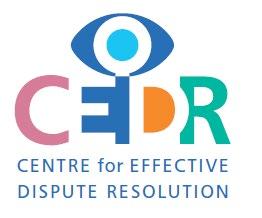
www.cedr.com

 By Ryan Compton, Director, Centre for Resolution
By Ryan Compton, Director, Centre for Resolution
Mediation of disability disputes is an increasingly common way of achieving swift consensus while avoiding lengthy and costly litigation. A trained, impartial mediator works with two parties to resolve any issues which have arisen between them.
Dialogue is confidential, everyone is given equal time to present their point of view, and the mediator’s role is to facilitate open, honest discussion to effect an outcome satisfactory to both parties.
Mediation often mends broken relationships, whether in the workplace or between individuals and institutions.
Effectively handled, disability mediation empowers both the party with the disability and the able-bodied party. The knowledge and understanding of disability held by the disability mediator facilitates everyone in achieving an informed, practical resolution. This is particularly the case when the mediator has personal experience of disability and its impacts. As a consequence they
will understand the specific questions to ask, and how to ask them, to get the fullest understanding of any particular case.
Disability can often be an inflammatory topic of discussion and, however well-meaning, the expression of uninformed opinions or use of inappropriate terminology can lead to breakdowns in communication. A facilitator with experience of disability will be adept at providing both a legal and social context for these discussions, and have a thorough understanding of equality policy from all perspectives.
Just as importantly, they will have an understanding of many of the day to day practicalities of living with a disability. They will be able to elicit insights which a participant with a disability may not feel comfortable expressing independently, and which an able-bodied participant may not have considered. This allows for the very best kind of mediation: open, informed and focused discussion to find common ground and agreement.
For more information about Disability Mediation please visit www.centreforresolution.com/disability-mediation


Disability related disputes can be inflammatory and the use of inappropriate terminology and lack of disability awareness are just some of the many key components that can prevent effective communication. Avoid this by using our expert mediators who specialise in disability.
No matter what type of disability dispute, we have the expertise to resolve the issue quickly, sensitively and effectively.
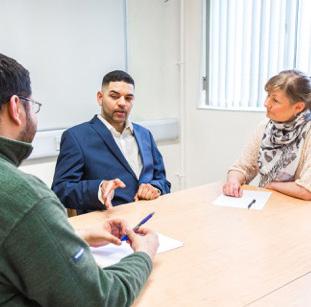

In these turbulent times, with escalating tensions in world politics and when society seems increasingly polarised, you could be forgiven for thinking that there has never been a greater need to educate people about dispute resolution and how to deal with conflict effectively.

The ability to deal with conflict is not something that comes instinctively to us as a species. In fact, our instinctive “fight or flight” response to a perceived threat (which is how the brain interprets conflict) is a survival mechanism that is hard-wired into the human brain. In the face of conflict a primal response kicks in. Whilst this may be a natural response to conflict, it doesn’t have to be an inevitable response. An understanding of the dynamics of conflict and how to deal with conflict and disputes more effectively can be learnt. Yet few outside of the mediation community (or those who have taken mediation training) are taught these skills.
TalkingWorks is a registered charity that believes that one way to begin to address this gap and to start to embed conflict resolution skills into society is by providing training to young people as part of their education.
Although many young people are seeing and facing conflict in their daily lives, and witness conflict and disputes in the world around them, they are not generally provided with the skills to help them manage these situations.
Learning to handle conflict in productive ways is an important social skill that young people can use throughout their lives. The core skills of conflict resolution, namely good communication, real listening, and looking for solutions are valuable skills in
all walks of life. The focus on resolving problems also teaches young people how to think creatively and to evaluate solutions. It gives them the confidence to solve problems in a positive and constructive way.
At TalkingWorks we believe that young people being fluent in the language and techniques of mediation and dispute resolution, and being confident in dealing with conflict when they encounter it, can only be a good thing for them and for society at large.

In partnership with law firms and other funders, TalkingWorks provides a one-day practical training in mediation skills that has been developed specifically for sixth formers and post-16 students. The training is led by an experienced trainer who is assisted by a team of professional mediators. These mediators volunteer their time to act as coaches and share their experience of dealing with conflict with the students.
Students learn the core skills of mediation and learn more fully how they can apply them to daily life and everyday situations. They get a sense of the differing places where conflict exists and how mediation could be a better way of resolving those conflicts.
The training itself is very interactive and highly engaging. It combines practical exercises and role-plays in small groups with each group of students receiving coaching on the skills they are developing from a professional mediator. The aim is for the students to find the day challenging and thought-provoking but also fun. Creating a memorable learning experience that will
stay with students long after the day of the training has been key to the success of the training. In addition to role-plays of scenarios that the students can relate to, the training also uses current events and topics identified by the students themselves to keep it relevant to them. Having been a coach on the training, it’s inspiring to watch how quickly these young adults understand how these skills might have a real practical application in their own lives and an impact on the world around them.
In just one day’s training the students acquire skills that they can immediately put to use in their lives. These skills include active listening, empathizing, effective questioning, generating solutions and being impartial. The training highlights how to deal with difficult situations and but also when not to intervene.

Most disputes have their roots in a breakdown of communication. When people are in the midst of a dispute, or find themselves in conflict, effective communication can be even more difficult. It can be particularly challenging to really listen to others when they are expressing views and arguments that we disagree with or that make us upset or angry. In this situation, although a person may outwardly be taking in information they are often already busy in their own heads preparing a response or a counter-argument.
As all good mediators know, active listening is an important skill to get to the heart of what is going on in a dispute and to


build trust. During the training we help students understand what it means to “actively listen” and we teach them practical skills to help those in dispute to really listen to each other. Listening carefully to try to really understand what the other person is saying and why they are saying it, rather than just to respond.
They learn the power of accurately paraphrasing what the other person is saying to demonstrate that they have really heard and understood what that person wants to say. They also learn the importance of body language and role of non-verbal communication in helping people have good conversations.
Using fun practical exercises the training teaches the students the value of questions and how they can use different types of questions to understand what matters to a person, to obtain information and resolve ambiguity, and generate solutions.
The training provides young adults with vital skills to understand and deal with conflict at school, at home and beyond. The hope is that in doing so we are equipping the next generation with not only a range of valuable life skills that they will be able to draw on in their school life and future careers, but also embedding an understanding of some of the key processes for conflict resolution into our society. These young people are, after all, the future.
If you would like to get involved or support TalkingWorks please visit www.twis.org.uk, where you will find links and futher information.
The students simply soak up the principles and the relevance of mediated solutions to conflict
Robert Still, Lead Trainer
“ “
STILLHR specialise in the mental health implications of conflict – our associate, Liz Katis, is a UKCP registered psychotherapist with 25 years’ experience in the NHS and the workplace. She specialises in workplace relationships and organisational issues. For tricky or persistent conflicts we can offer a ‘Mediation Plus’ intervention – this includes up to three individual workplace support sessions for each individual followed by the traditional day mediation session. This replaces the one-day ‘quick fix’ mediation which often does not result in a lasting agreement. Using this approach, resolutions and voluntary agreements are more likely to be reached and be longer lasting.
‘Mediation Plus’ is particularly appropriate for key ‘mission critical’ staff who are more vital to the organisation’s continued success and, consequently, require more investment to ensure their continued maximum effectiveness.
This year we are introducing a ‘Mental Health First Aid’ package for organisations that want to improve their support for mental health in the workplace. This is based on the accepted premise that prevention is better – and cheaper – than cure.
We know how high the financial cost of conflict in the workplace can be but it also has a big impact on mental health. Both the individuals directly involved and staff across the organisation feel the stress and anxiety of unresolved differences.
The effect of not facing the difficult conversation, of not dealing with long or short term strains or silences ratchets up the tension and the results can be explosive and the organisation sees the results in declining efficiency and efficacy which is reflected in the bottom line. Causes of conflict are many and varied, ranging from persistent tensions in teams due to differences in performance or attendance, to personal habits, to the effects of organisational change.


At STILLHR we have developed a bespoke diagnostic service which looks for causes of conflict and recommends the best resolution tools. This can include not only mediation (when we feel it is the appropriate solution) but also varied mental health techniques. This flexible approach is delivered by a team of four associates led by Robert Still, the founder and director, which means we can offer a broad range of interventions in a tailored package which targets the specific issues to produce the most cost effective results.
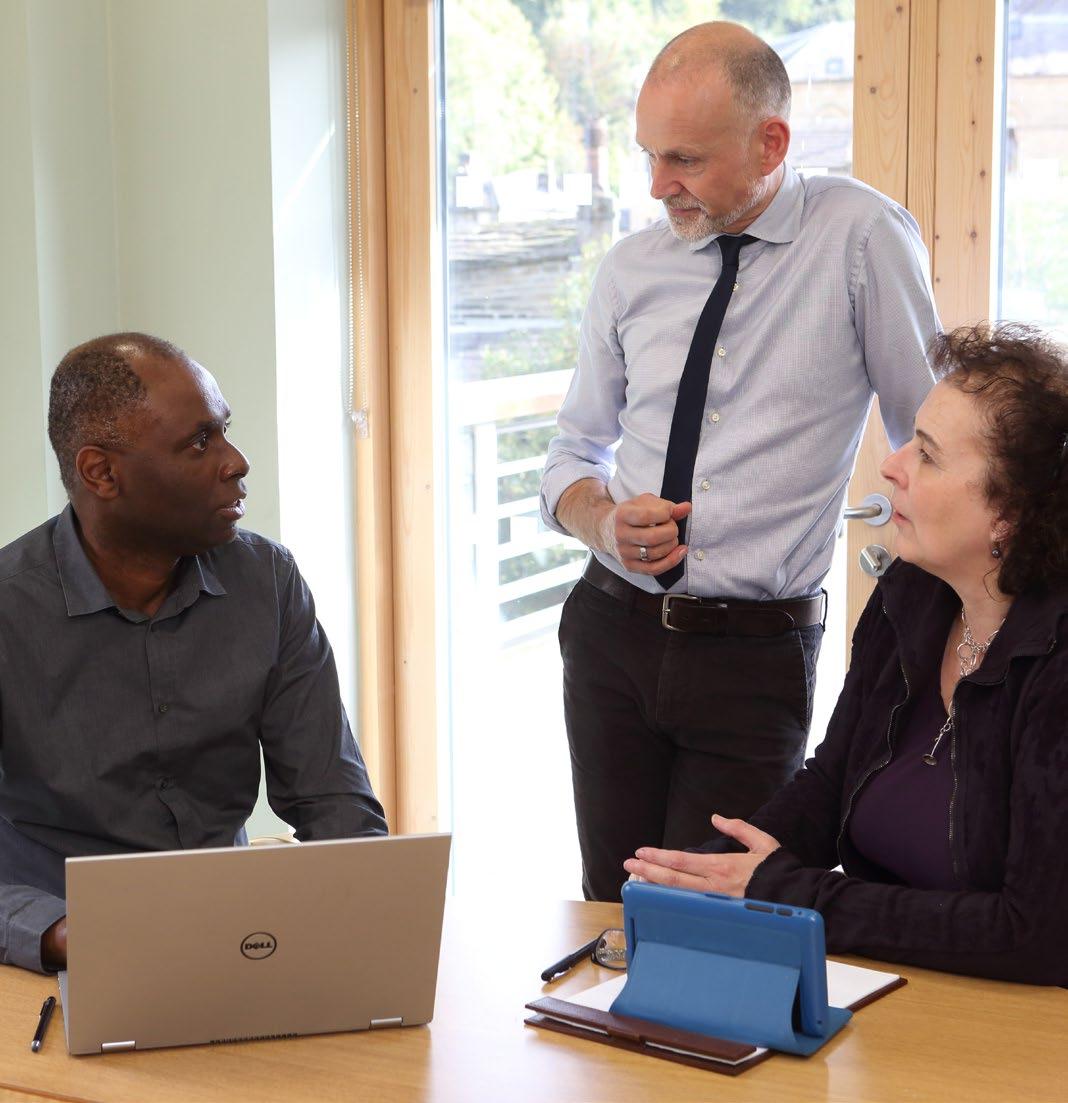

We can train groups of Mental Health First Aiders who will be registered with Mental Health First Aid England, and create a bespoke package for the organisation. As part of the package we also offer research into the current state of staff mental health in the organisation and tailor the introduction of first aiders according to the research results.
Underpinned by careful diagnosis and targeted intervention our clients achieve excellent results. Along with our other innovative and effective solutions such as ‘Courageous Conversations’, ‘Showing Respect in the Workplace’, ‘Managing Sickness Absence’ together with our standard mediation services, STILLHR, with bases in London and Yorkshire, are successfully helping organisations of all types all over the UK to create happier workplaces.
To learn more about STILLHR’s unique approach, call Robert Still for an initial informal chat on 07932 762 448
Join the Chartered Institute of Arbitrators at its 10th Mediation Symposium taking place in London on Wednesday 27 September 2017. The event is kindly hosted Ashurst LLP.

The Mediation Symposium is an important event in the dispute resolution calendar and provides mediation practitioners worldwide with an opportunity to improve their skills and practice.
This year’s Symposium will be exploring some important contemporary themes: how mediation and mediators might add real value above and beyond conventional negotiation and how understanding unconscious or cognitive biases and the developing world of neuroscience might enhance significantly what we do.
Speakers include internationally recognised leader in the field Kenneth Cloke, author of Mediating Dangerously and other books, and leading mediators John Sturrock QC and Paul Rose FCIArb. Participants will be invited to explore in workshops what this means for themselves and users of mediation.
For more information and to register your interest visit; www.ciarb.org/mediationsymposium
For more information please contact:
T: +44 (0)20 7421 7491 E: events@ciarb.org W: www.ciarb.org/events
There was a potent silence after the complainant had delivered his opening statement: there were eight people in the room, and every one of us was struggling to maintain our composure. I observed the legal and financial representatives from the bank, even as I felt my own throat tighten with suppressed emotion. Then there was the complainant, Mr. K, who had, with great difficulty, managed to deliver his opening statement, read from a document that shook as he held it, while he seemingly ignored the tears that trickled down his face and jaw. He placed the document gently on the table and continued to stare at it.

After hearing both parties’ perspectives, we broke into two groups for the private caucus sessions. My co-mediator and I had decided ahead of time to see the team from the bank first; as we rearranged the room, he muttered to me under his breath, ”So much for the banker’s comment in our pre-mediation meeting that this was ‘just ‘business, nothing personal’!”
The senior counsel for the bank opened the session with the comment: ‘we really had thought that this was just a ‘try on’: we can see now that that this is a sincere and distressing situation. Certainly we need to act in the best interests of our institution, but...I think we need to re-evaluate our options’. This statement was met with affirmative nods from his associates.
I can’t report that all turned out happy and content: damage had been done on both sides, and losses are an inevitable part of conflict, and of life. What is important to note, in view of my premise, was that the emotional expression of ‘the other side’ had been received as an important piece of information: this was a real human situation, and ‘right’ and ‘wrong’ were more ambiguous positions than had first been claimed.
The supposition that conflict can be managed on purely ‘rational’ grounds belies the very nature of the issue: all disputes are personal, they involve people, and as such, they will always involve emotions.


I work and teach with a paradigm for understanding conflict and resolution that is grounded in the philosophical tradition known as ‘existential phenomenological’.
In this model, we stress that emotions are not the impediments to a resolution, as is often the view, but they are in fact the means by which it is possible to ascertain what will make a more satisfying outcome for all concerned.
It would be impossible to even reference the extensive literature that underpins this approach, so I will leave it to the reader to research it if they are interested; I will, however, provide a brief introduction to this aspect of the theory and practice of understanding and working with emotions in mediation.

When an emotional expression is shared, or demonstrated, it can be understood as the voice of value: what we are emotional about is a value that that is important to us personally that is being threatened, disrespected, or ignored, in the case of

a conflict, or, in the case of cooperation, the value implicated is being supported and actualised, and we experience some satisfaction.
In the first case we have a dispute, a contest, or a war; in the second we have affinity, cooperation, and even love.
An example of this might be an angry outburst about how ‘unfair’ a situation is: this is an indication that ‘fairness’ is a value that is not being realised in the current context; additionally, this is a good example of how anger is always in relation to a loss, current, past, or pending. We experience varying levels of anger if our values are not heard, appreciated, or are impeded in their actualisation.
The loss incurred is that our value-laden intentions are denied or blocked: this has an effect on us personally and particularly; we can feel disempowered, out of control, unappreciated and misunderstood, and very alone.
Our values are the bedrock of our ‘world-view’: these are the aspirations and expectations we have for and of ourselves, what we hope and expect from others, what we wish to see realised in the world, and what our perspective is on a cosmological level, that is, that realm beyond our control and comprehension.
Certainly a value like ‘fairness’ will be perceived differently by each person, and with reference to a given situation: what is important in managing a dispute, is to recognise that those involved each hold a subjective view on how fairness should be realised according to their own world-view.
It is paramount that this view is understood by a mediator, so that they do not work against these subjective truths.
This does not mean that the mediator agrees with the party, or suggests that the desired outcome will be achieved: the objective is to understand, as best as one can, the world-view of the person as it is related to the dispute, and to offer this empathic comprehension to the party.
Once the party’s world-view is understood by the mediator, the contender is less inclined to intransigency, because their position has been received without opposition.
The mediator doesn’t have to ‘dig’ for emotions: but they can increase their sensitivity to what is already being expressed, as emotions are always present. It can be particularly effective to set aside one’s own assumptions, and ask directly (for example): ‘what is it about this situation/incident/comment that really makes you angry/sad/happy?’
The retort may be: ‘well wouldn’t you be?’ The response to this has to be a genuine expression of interest as to how the person who is party to the conflict is experiencing their situation.
Once the values are recognised, explored, and considered further, the options for realising these may be reviewed, reconfigured, and renegotiated. Such inquiries, when conducted with an empathetic attitude, very often generate a new perspective for the aggrieved: new understandings provide novel horizons.
Emotions are the ‘royal road’ to the values that comprise our world-view: the extent to which those values are recognised and served, there will be a greater satisfaction in, and commitment to, the conflict resolution.

All disputes are personal, they involve people, and as such, they will always involve emotions

 By Karl Cockerill, ELHT Mediation Coordinator
By Karl Cockerill, ELHT Mediation Coordinator
Ihave been a union representative in the NHS for seventeen years. For the last eight years, I have used that position to promote sincere partnership working and mediation (rather than adversarial methods) to resolve work based conflict issues.
I am currently employed to coordinate the in-house mediation service for a large acute and community healthcare trust in NW England.

In my experience of mediation in large NHS organisations over the last eight years, the following key points underpin a successful mediation service:
• It is essential to have a coordinator who can ensure a timely response to staff needing mediation, provide a central point of contact for mediators and staff and who can ensure proper support and professional development opportunities for mediators
• A combination of management, HR partners and union representatives trained as mediators works well, encouraging partnership
• Placing the mediation service with a widely trusted department (in the case of ELHT, Occupational Health & Wellbeing) increases wider employee acceptance
• Using the principles of true partnership between employers and unions to support referral of members in conflict to mediation. Mediation should be regarded as a first, not last, resort and HR policies should be amended to reflect this. In my own Trust, an effort is being made to introduce a mandatory mediation awareness session for parties lodging a bullying & harassment complaint or grievance. In this way, mediation is an informed choice, or not if they choose to refuse it. In fact, mediation is recommended as a resolution tool in the Agenda
for Change Handbook (2016), Section 32 - Dignity at work, paragraph 32.21
• Securing the support of unions (via the TUC would be perfect) and training union reps to recognise when mediation would benefit their members more than adversarial processes. The 2007 Gibbons Report called on employee organisations such as unions, not only employers, to commit to implementing and promoting early dispute resolution
• Using partnership funding to develop this key link between unions and organisations; the funding is already available, it could be used to support and develop alternative forms of dispute resolution. Although most NHS Trusts fund full time release for Partnership Union Reps, the systems remain adversarial and costly. In my own organisation, the Partnership Team has four members of staff stood down full time, most Trusts have the same setup, the cost to the trust can be over £100,000 p.a. just for the staff stood down
• Reducing sickness absence and costs associated with implementation of formal processes (up to and including employment tribunal), as well as improving retention and engagement of existing staff are all benefits of mediation services, as detailed in several case studies
• Organisations might increasingly look for more formal, ‘harder’ evidence, perhaps in the form of cost-benefit analysis. Of the organisations that had undertaken such an analysis, it was concluded that mediation merited its adoption/use and also that formal investigations typically cost six times as much (Mediation: A Thematic Review of the ACAS/CIPD Evidence; Latreille 2013)
• From 2009, the following data describes savings in East Lancashire PCT:
The CIPD survey, ‘Managing Conflict at Work’, notes that on average, a UK employer receives three ET applications a year3

The survey also finds that 14% of bullying and harassment cases escalate to ET4, which would equate to three cases per year at NHS East Lancashire. Therefore, the following data has been based on three ET cases.
Time spent preparing for ET cases in the public sector is estimated as 23 days per case5.Salaries have been calculated at the mid-point of band 8d (the average rank of staff usually involved). £23,460
Cost of Witness Time
Witness time has been estimated at an average of 4 days per case for staff and 6 days per case for management. Salaries have been calculated at the mid-point of band 6 for staff and the mid-point of band 8a for management.
Cost of Union Time Union time has been estimated at an average of 10 days per case. Salaries have been calculated at the mid-point of band 6.
Cost of ETs
The average cost incurred by employers as a result of ET claims in the public sector is estimated as £22,5356. This figure includes settlement, compensation & legal advice. £67,605
Cost of Short-Term Absence Due to Stress
Average cost to a public sector health organisation is estimated as 11.7 days7 or £1,153 per employee8. Stress is the number one cause of short-term absence9 for non-manual employees, and accounts for 72% of absence in the public sector10. N.B. The cost of short-term absence has been based on 22 successful mediations. £36,527
• In my current organisation, the in-house mediation service started life as an HR function with no dedicated coordinator. In two years, they received 49 referrals, only 20 cases went to mediation and, of those 20, 16 gained a resolution.

• From September 2016 to January 2017, once a mediation coordinator was appointed, 20 referrals were made, 19 chose to go to mediation and, of those 19, 18 gained a resolution
The facts and figures speak for themselves. The challenge laid down to employers and unions by Gibbons in 2007 was not met. In the public sector, Ministers have the capability to directly influence positive change.
In the TUC, senior union officials have the power to move the mediation agenda forward, in the interests of their members who

stand to suffer less and gain more. Since 2009 to present day, 75 mediations have taken place with only 7 not getting a resolution. This demonstrates a 93% rate of positive outcomes.
The second highest reason for long term sickness absence in the NHS is stress/work related stress. A significant amount of this stress is brought on by relationship issues or allegations of bullying and harassment in the workplace.
For very little capital investment and low running costs, the saving to the NHS is potentially immense, reducing sickness absence, enabling teams to be more productive by spending less time concentrating on conflict issues. The average time a member of staff takes off with work related stress is approximately four to six months on full pay, some stay off longer, mediation can address this issue in most cases.
1 This calculation is based on the cost of using formal processes vs. mediation. Set up costs for training accredited mediators are not included nor are the training costs associated with formal processes.
2 CIPD (2004). Managing Conflict at Work, p.9 and CIPD (2007). Managing Conflict at Work, p.4.
3 CIPD (2004). Managing Conflict at Work, p.4.
4 Ibid., p.20.
5 Ibid., p.11.
6 CIPD (2007). Managing Conflict at Work, p.24.
7 CIPD (2008). Absence Management, p.6.
8 Ibid., p.16.
9 Ibid., p.21.
10 Ibid., p.23.
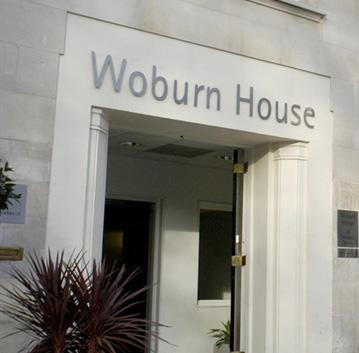









evaluate the service, and as the source of external conflict resolution partners to bring in for particularly complex or sensitive cases.
CMP’s ‘Courage to Manage’ e-learning programme and one-day ‘Difficult Conversations’ classroom training were run as a pilot involving 65 managers. Learners reported gaining significant skills from the learning, which they also enjoyed and believed to be a good use of their time. The pilot was so successful that managers elsewhere in NHS Lothian commissioned more than 20 additional delivery days for the course. The training is now part of their management development pathways as an essential module of management training, and they now have more than 300 managers trained.
CMP helped with the process of selecting the most appropriate members of staff to be trained as mediators, and in getting the internal services up and running - supporting the marketing of the service internally, advising on the service structure and resourcing. 16 mediators were trained to an accredited standard, on the 6 day ILM Endorsed Professional Workplace Mediator training.
NHS Lothian - Scotlands largest NHS organisation, employs 24,000 staff providing health services to the second largest residential population in Scotland. NHS Lothian faces the usual stresses of providing frontline support to people facing illness and trauma - and recently, this was also in the context of a need to modernise its service delivery. The Board found a significant proportion of its HR, management and staff time was spent on managing issues arising under ‘people management’ policies, many rooted in a lack of open, honest dialogue in the early stages of conflict. Problems were being stored up and then expressed inappropriately.
NHS Lothian wanted to create a different model for handling all types of conflict - from straightforward differences of opinion and perspective, different working practices to clashes of personality - with a new ‘clear air’ culture. New channels and platforms were needed to deal with issues more quickly - and at lower levels of management, supported by a culture where all staff had trust in the systems, their managers, and being able to be open about difficulties and vulnerabilities.
The experts at CMP Resolutions were called upon to establish an in-house mediation service by upskilling managerial staff in handling difficult conversations and training key staff as internal mediators. The Board also used CMP’s experience to advise on the infrastructure and materials required to manage, monitor and
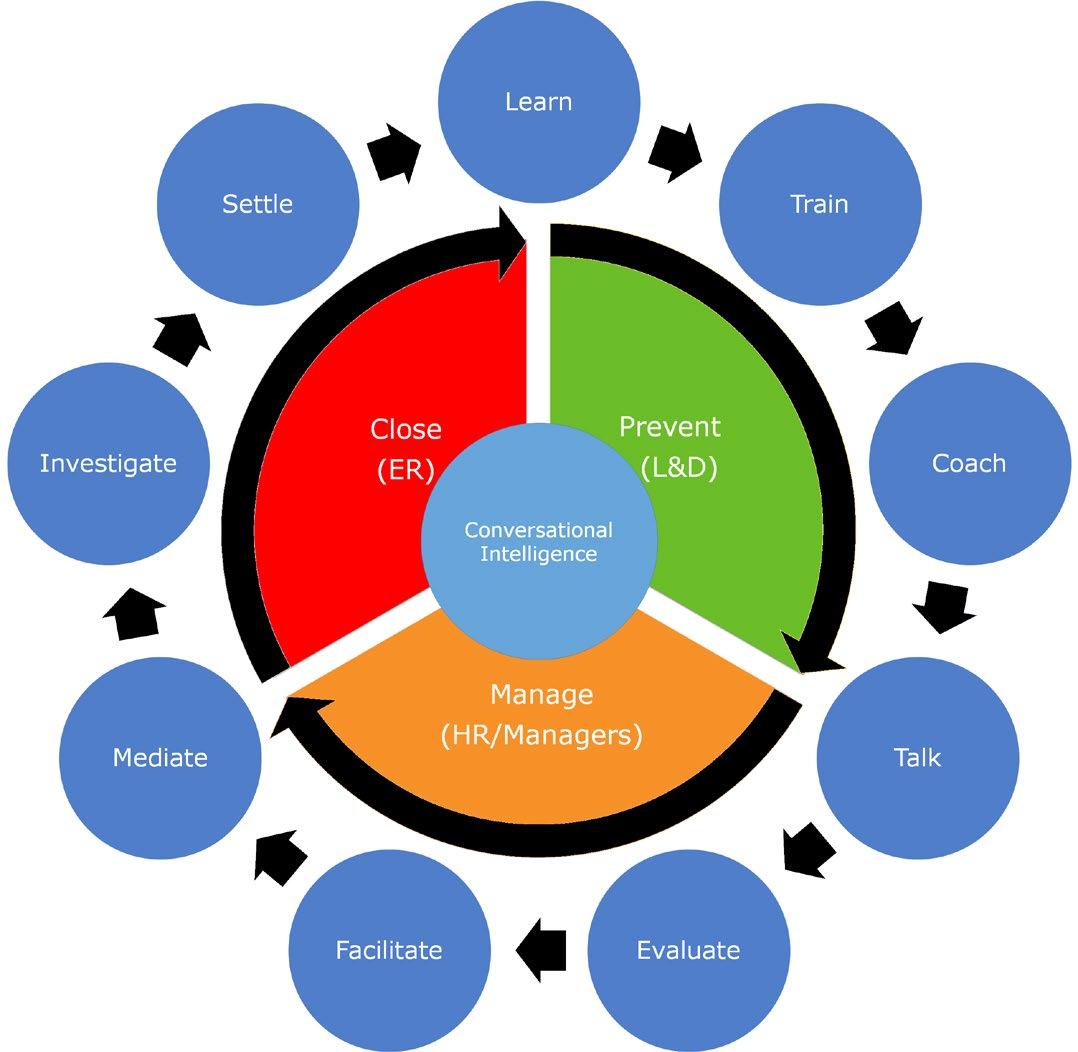

In the two years following the end of the initial programme, NHS Lothian has seen a referral rate of at least two or more mediations each month. Of those referrals which reach the joint meeting stage, 94% have resulted in an agreement between the parties - more than fifty issues resolved which might have led to more serious and formal interventions or tribunals. There have been falls in the number and length of sickness absences, and for time needed for managing conflict situations, both formal and informal: estimated at a saving of over 100 days in the first 16 months. Across the organisation managers report feeling more confident and able to have effective conversations earlier.
In terms of a tangible Return on Investment, the Board undertook the CMP Resolutions Conflict Profile Audit at the start of the project and then again after 18 months. Combining this data with data gathered through the Courage to Manage pilots and other data sets, the analysis indicated that the financial return on investment could be as much as £2.32 for every £1 spent, a potential return of 232% in the first year alone.
www.cmpresolutions.co.uk


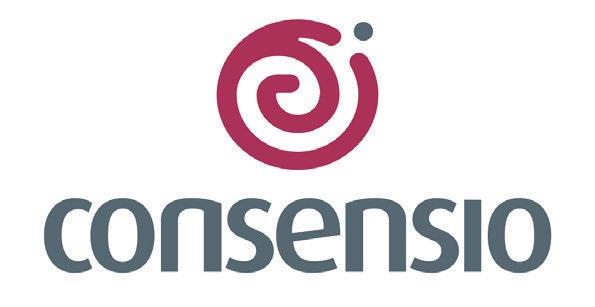


‘You don’t need an electrician’ I said to myself as I stared blankly at the results of my Google search for ‘local electrician’. One of the light switches in the living room had finally given up and we could only use the side light. It wasn’t a massive problem but it had to be fixed, hence my reaching for the Ipad to find someone to do it. But really, isn’t this something I should be able to do myself? It’s electricity, get it wrong and the consequences are very serious. Yes, but it’s a minor job, do I really need a fully qualified professional electrician? I’m replacing a light switch not rewiring the whole house. So no, I don’t have to call in the professional but I do need to know how to go about it. To stay safe I need to check what I should do and follow the right process. So I changed my Google search to learn how to change the light switch safely.
What has all this got to do with workplace mediation? It’s an analogy that I think fits quite well with the situation facing the typical HR Manager when dealing with a low level employee conflict. Two employees have fallen out. The line manager has tried to ‘fix’ it but has probably only made things worse and has turned to you as their trusted HR Manager to ‘get it sorted’. Of course you could email the employees a link to the grievance policy and let them go down the formal route. But you know that this is a relationship issue, and suspect the formal process is only going to make things worse. They need to talk it through with someone to help them. So do you call in a professional mediator? Like me with the electrical socket, isn’t that heavy handed for this

situation? You know you should be able to do this yourself, but how?
The above situation is common in the workplace today and was highlighted at the Civil Mediation Council conference on workplace mediation in February. The message is that there is a lot that the HR professionals within organisations can do to nip conflict in the bud but support is needed in terms of the skills, process and tools to know how to go about it. Let’s be clear, I’m not talking about entrenched conflict which has already escalated and is in real danger of having negative impact beyond the two people involved. By all means give me or my professional mediator colleagues a call if this is the case. No, I’m talking here about everyday occurrences where people fall out, often through clash of personalities and breakdown of communication, where they haven’t managed to sort it out themselves and just need an extra hand. Like my light switch analogy it’s a DIY task, something you should be able to do yourself given the necessary skills and knowledge.
Is the answer to train HR as mediators? There are plenty of courses available to give you ‘accredited mediator’ training but for me this would be overkill. By all means do the full training if you are intending mediation to be a major part or all of your job, but this would not apply to the vast majority of HR professionals. The training is wasted unless you are using what you have learned on a regular basis, mediating cases and developing your skills. For most of the HR population, the need to mediate is more
infrequent. It’s more a case of having a toolkit you can turn to as and when needed. To change my light switch I found some step by step guidance which took me through what I needed to do without having in depth electrical knowledge. There were videos and diagrams to guide and show me what to do. The same can be done to support HR professionals. Providing a step by step process, guidance on the skills needed and some handy tools to make it easier gives you the competence and confidence to tackle low level conflict successfully. I call this ‘DIY Mediation’ and I’ve written about it in my recently published book ‘DIY Mediation. The Conflict Resolution Toolkit for HR’.
The DIY Mediation approach is based on HR acting as an impartial facilitator, helping the participants in the conflict find a way forward themselves. Hundreds of people have been trained in this approach and when trying it out through role play it is clear that some of them are initially uncomfortable with this style. This is not surprising. We have been trained over many years as line and HR to ‘sort things out’. Standing back and facilitating is a different approach that takes time to get used to. It takes practice – some people will pick it up fairly easily, others realise it is simply not for them and will look to other options.

DIY Mediation is built around an easy to follow, five step process – the AGREE model. You follow the process and apply the four key skills. Tools and resources such as question sets and form templates ensure the approach is straightforward and practical to utilise.
AGREE comprises five phases from initiating the intervention through to resolution. The five stages take place during two sets of meetings, together with preparation and follow up. The four key skills of DIY Mediation are

• Questioning
• Active Listening
• Impartiality
• Assertive Communication
Applying the skills and process of DIY Mediation won’t necessarily result in a resolution to the conflict between the participants - in the end it is their responsibility to find a solution. But it gives you an approach that, when used correctly, gives the participants every possibility to resolve their issues and avoid the unnecessary pain of relationship conflict and the damaging costs to the organisation.
Finally, this is not about taking work away from professional mediators – as one myself I’d be shooting myself in the foot! On the contrary I believe that if organisations adopt the mediation style approach for resolving low level conflict it will open the way for using mediation for conflict resolution throughout the organisation, providing a more positive, open and productive workplace culture.

Mediation is a highly effective form of dispute resolution. Litigation and court proceedings can be expensive, time consuming and emotionally draining for everyone involved. They can be damaging for businesses and their employees, even for the party that wins the case. In contrast, mediation can ensure that both parties gain by agreeing their own solution, which can be more flexible and creative than a court decision.
Getting the right mediator to guide the mediation process forwards can mean the difference between success and failure. The right mediator will enable all parties involved to come to a conclusion that works for everyone. They will create a win-win situation. The wrong mediator may cause you to end up in a lengthy and costly court battle. This can only result in an outcome where one party wins, but the other loses.
I see five key factors to consider when selecting the right mediator to work with:

1. Mediation objectives

You need to be clear what you want to achieve from the mediation. Are you looking for a settlement at all costs? Or are you simply gathering information to prepare for trial? Be clear with potential mediators what your goals are and ask for examples of how they have mediated on similar situations before.
2. Time commitment required
Do you need a full or part time mediator? A full-time mediator can be essential in situations where undistracted commitment is required, possibly for more than a day. A part time mediator may be sufficient if they have direct current, relevant experience, but they may have other calls on their time which may interfere with their ability to work undistracted.
Depending on the nature of the dispute, you may need to look for a mediator with specific expertise on the subject matter. This might be experience of the particular industry, such as retail, or the skill area, such as engineering. In other cases, general experience as a mediator may be more beneficial, if you are less sure about the direction the mediation may take. Also think about whether you need a legal or non-legal mediator. There is a big debate in the mediation world as to which is ‘better’. My view is that it depends
on the subject matter of the dispute and there will be cases where either is preferable. For example a complicated title / boundary / access dispute is likely to be best dealt with by a lawyer, and possibly in conjunction with a surveyor
Consider the types of skills you are looking for in a Mediator. Do you want someone who will take an evaluative and proactive or more facilitative approach? Each requires a different set of skills. Listening skills are vital, as well as an ability to be proactive and think outside the box. A top mediator is tenacious but patient and has a proven track record of success.
5. Co-mediation options
Co-mediation is where multiple mediators (often two) work together to help resolve a dispute. It can be particularly beneficial in multi-party cases with complex issues to be resolved. It can also ensure that both parties feel equally and neutrally heard in the mediation process. Co-mediation allows you to select mediators with complementary skills, for example combining the skills of an industry specialist with an experienced generalist mediator. Or a property expert mediator could work alongside a surveyor, valuer or engineer expert mediator. Whichever you select, both mediators should be experienced in co-mediation and agree to share the fee and the tasks and be happy to work together as a team. If mediators can’t collaborate there’s no hope!
Once you have considered all these aspects compile a short list of three potential mediators. Review their profiles for evidence of their experience, skills and success. Check out what panels they are on, as well as evaluating their case studies and references. Use online tools such as Clerksroom – their national league table of Elite Mediators is based on client feedback, creating a good indicator of success. Take the time to consider all the factors involved and decide which mediator is best for each particular case.
To find out more about my mediation services please call 07776 141 717 or email roger@rogerlevittmediation.co.uk . Check out my website at www.rogerlevittmediation.co.uk . As an experienced property solicitor, of over 33 years I am fully versed in the legal framework of property and business disputes, and passionate that mediation provides a fresh approach, with a high success rate.

Need help to resolve a business dispute? Contract issues? Commercial property conflict? Workplace friction?

Neighbour Disputes? Partner Disputes? Problems with Child Access?
Wandsworth Mediation Service is a unique mediation service. Set up in 2004, we offer commercial and workplace mediations nationwide.


Wandsworth Mediation Service is here to support the Wandsworth community.
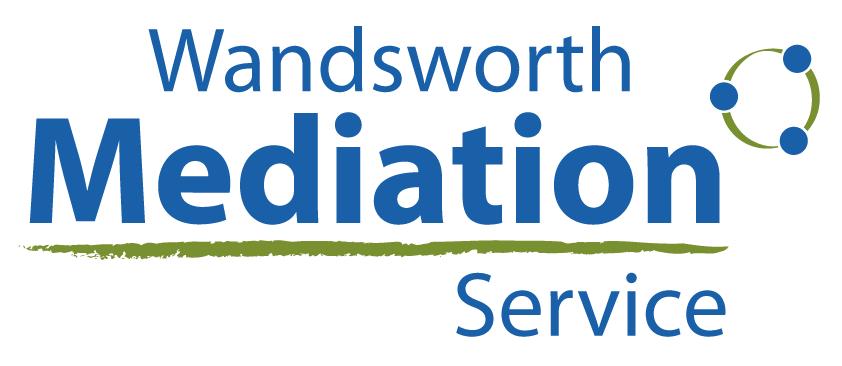
We have 100% success rate with our commercial mediations.
Set up in 2004, we have helped hundreds of people reach a peaceful agreement with their neighbours and families.
Our panel of high calibre mediators volunteer their time with us and all fees generated are used to facilitate conflict resolution and mediation in our community.
We also offer 1 day Conflict Awareness and Skills Courses for HR teams and those in your organisation dealing with conflict and tension.
Mediation is an opportunity to come together, discuss issues and arrive at agreed solutions. Our service is free to Wandsworth residents.
I’ve tried everything, but
”
“We have tried everything, but this
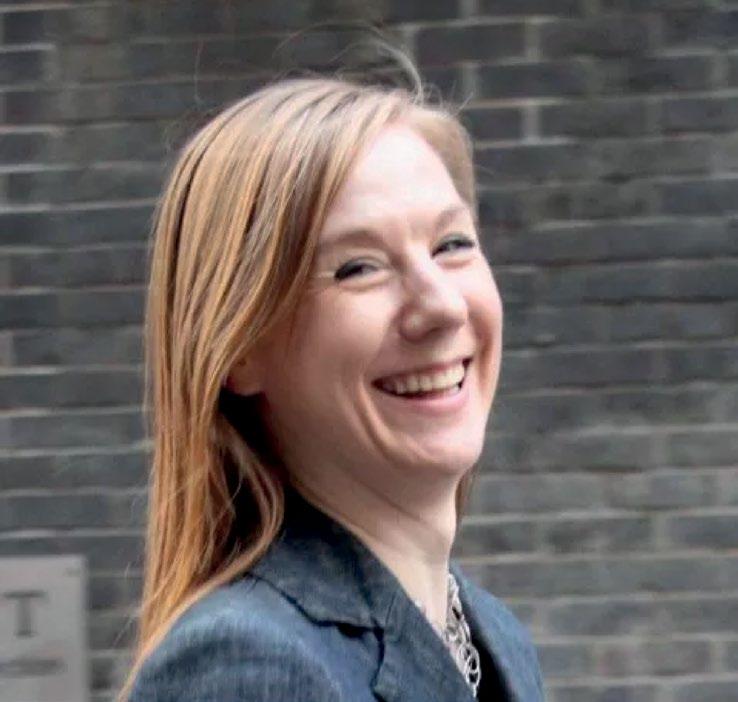
“Very impressed with the mediator... a positive outcome was achieved for both parties as a result of the mediation”

“Well prepared, thorough, built up a good rapport with the client and worked hard to ensure that the parties reached the right deal”
“I would highly recommend Gill and would select her as a mediator again”
CGuide and Protocol was launched at the Construction Summit held at Ashton Gate Stadium in Bristol on 9 June. It is available online, please click here
So, what is the story behind this ground breaking document? CESW seeks to improve the performance of the UK construction industry through collaborative working and it was the spirit of collaboration between a group of south west construction lawyers and the support of CESW that saw the Guide and Protocol come to fruition over the last 12 months. The project was sparked into life following an introduction of Jackie Gregory-Stevens to Chris Reeves, CMC member and founder of Mediation for Construction (“M4C”) by Andrew Carpenter, CEO of CESW.
Jackie is a chartered surveyor and head of commercial major projects at Babcock International. Jackie had spent the last few years talking to the construction sector about the use of mediation and her research revealed a shockingly low level of detailed knowledge of the mediation process; many stakeholders dismissed the process as they did not know enough about it and the research revealed that if there was more knowledge then more disputes would be resolved through mediation rather than more adversarial methods such as adjudication.
Chris and Jackie presented to the CESW leadership council in September 2016 and, following a vote of support, the drafting team was formed with Chris to produce a CESW document: Alan Tate of Trowers and Hamlins LLP, Chris Hoar of Michelmores LLP and Stephen Homer of Ashfords LLP. The Guide and Protocol was developed with the focus on addressing the lack of detailed awareness of the process.
1. An explanation of what mediation is and its benefits.
2. A set of guidance rules referred to as the “Protocol” for each stage of the process.

3. Toolkit documentation including a model mediation incorporation clause – a contract for the appointment of a mediator and a mediation agreement. The toolkit also included a model letter of referral – a letter that sets out a request for a dispute to be resolved by mediation.

Please take time to download and read it. The document was designed by Philip Jansseune and printed in Bristol, adopting the colours of the rainbow as a theme.
It has won the support of many construction law firms in the south west including Osborne Clarke LLP, Clarke Willmott LLP and Foot Anstey LLP, to name just a few.
With the help of the Guide and Protocol a more collaborative approach to dispute resolution is firmly on the map in the South West, with thanks to Mediation for Construction and the CESW team. CESW will be offering seminars to not only CESW clubs but other stakeholders to promote wider interest in the sector.
www.mediation4construction.com



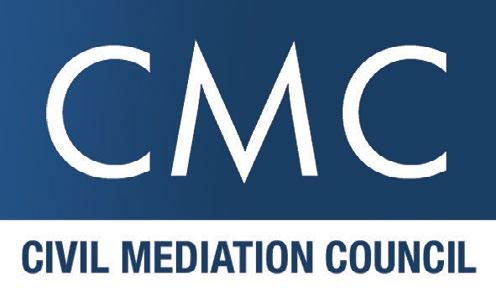
CEDR
t: +44 (0)20 7536 6060 e: adr@cedr.com w: www.cedr.com
Europe’s largest independent commercial and workplace dispute resolution provider: CEDR has worked with over 100,000 parties in commercial disputes and helped resolve over 300,000 consumer complaints across 30 sectors. A select few of the individuals CEDR trains progress to join the CEDR Mediation Panel, which currently comprises 200 mediators speaking 15 different languages.


t: +44 (0)7775 445 614 e: info@centreforresolution.co.uk w: www.centreforresolution.com
Centre for Resolution provides mediation services across the UK including family, civil, commercial and workplace. Our mediators are also specialists in disability, with over 10 years of experience in the sector. They understand how to resolve all disputes regarding disability and equality, in a sensitive, quick and highly effective way.


CIARB
t: +44 (0)20 7421 7444 w: www.ciarb.org/dispute-appointment-service
CIArb’s Dispute Appointment Service provides quick, confidential and cost effective methods of dispute resolution and dispute avoidance for civil and commercial cases. It utilises highly trained and suitably qualified ADR practitioners selected from the CIArb membership to assist in resolving disputes.
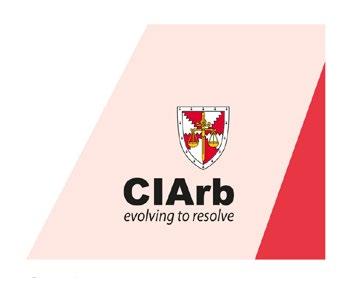
t: +44 (0)20 7938 0945 e: Timmy.kurtuldum@cic-eap.co.uk w: www.cic-eap.co.uk
a: 23 Kensington Square W8 5HN Contact: Timmy Kurtuldum
CiC’s professional workplace mediators have a wealth of expertise and are highly skilled at managing and identifying areas of concern and facilitating open exchange whilst remaining totally impartial. Our services include external mediation for two party and team disputes, internal mediation training and conflict resolution training to effectively manage workplace disputes.
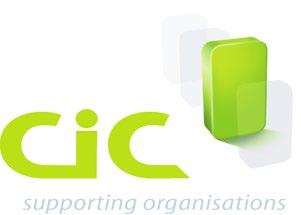
t: +44 (0)1763 852 225 e: info@cmpresolutions.co.uk w: www.cmpresolutions.co.uk


a: Low Farm, Brook Road, Bassingbourn, Hertfordshire SG8 5NT Contact: Richard Peachey
We believe no-one should fear conflict at work. Established in 1989, we are the UK’s largest conflict management services provider, both nationally and wider. Our mediators each have more than 10 years’ experience in workplace mediation, and can call on varying models of mediation to meet the needs of parties and clients, so that any situation can benefit from mediation. We have a national presence, diverse mediators, a 24-hour turnaround, and a 98% success rate. So call CMP Resolutions, truly the mediation experts.
t: +44 (0)20 7831 0254 e: hannah.king@consensiopartners.co.uk w: www.consensiopartners.co.uk

a: 51 Musard Road, London W6 8NR Contact: Hannah King
Consensio is a leading workplace mediation provider, helping organisations to manage workplace conflict. Our services include: 1) mediation and conflict resolution training ranging from taster events to accredited training, 2) external mediation services for two-party and team disputes, 3) conflict coaching and 4) consultancy services to transform organisational responses to conflict.
t: +44 (0)131 524 8188 e: info@core-solutions.com w: www.core-solutions.com
For fifteen years, Core has provided a comprehensive mediation service at the highest levels in commercial, business, management, public sector and other disputes. Led by highly-ranked John Sturrock QC, we work throughout the UK and beyond, providing a high quality, independent mediation and facilitation service, as well as specialist coaching and training.

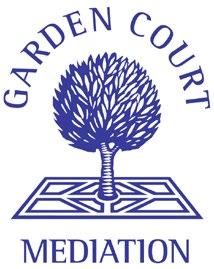
t: +44 (0)20 7993 7600 e: mediationclerks@gclaw.co.uk w: gardencourtmediation.co.uk
a: 57-60 Lincoln’s Inn Fields, London WC2A 3LJ Contact: Lavinia Shaw-Brown
We offer a flexible, high-quality mediation service from the initial inquiry through to facilitating agreement. We have a team of experienced, professional mediators with the interpersonal skills to suit all civil, commercial, workplace and family disputes. Our aim is to help you find a resolution to the dispute quickly and effectively.

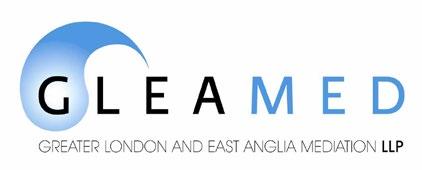
t: +44 (0)1206 217 133 e: mediation@gleamed.co.uk w: www.gleamed.co.uk

a: 63 West Stockwell Street, Colchester CO1 1HE. London Office also available Contact: Tom Thomas
GLEAMED provides civil/commercial, workplace/employment, family, and community mediation in East Anglia and London, referred by individuals, lawyers, firms/organisations and courts. We handle contractual, property, boundary, rental, child contact, divorce, workplace, neighbourhood, community and many other types of dispute and offer international mediation, working with The Human Right Centre at University of Essex.
t: +44 (0)7907 367 467 e: gill@gillmansfieldmediation.com w: www.gillmansfieldmediation.com
Gill is an effective commercial mediator who gets results. Her thorough and energetic approach helps individuals and companies identify workable solutions and achieve positive outcomes. Gill is an experienced CEDR accredited and CMC registered mediator. She has successfully mediated disputes on both sides of the Atlantic and has extensive international dispute resolution experience. She is also a member of the World Intellectual Property Organisation’s IP mediation panel.
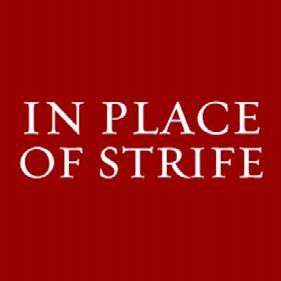
t: +44 (0)333 014 4575 e: info@mediate.co.uk w: www.mediate.co.uk
a: International Dispute Resolution Centre, 70 Fleet Street, London EC4Y 1EU
Contact: Joanne ClaypoleLeading UK and International Mediation Chambers established in 1995. Handling civil, commercial, family, workplace and employment disputes. Our mediators have, between them, mediated thousands of disputes and many of our members are recognised as expert mediators by the legal directories. In addition, we offer a full case administration service; from helping the parties select a mediator to arranging the date, venue and paperwork necessary to make your mediation as smooth and as successful as possible.


t: +44 (0)20 7127 9223 e: imoffice@independentmediators.co.uk w: www.independentmediators.co.uk

Leading UK and international mediation chambers consisting of nine highly experienced mediators; Charles Dodson, Phillip Howell-Richardson, Kate Jackson, Michel Kallipetis QC, Jonathan LloydJones, Mark Lomas QC, Bill Marsh, Andrew Paton and Nicholas Pryor. Mediating commercial and civil disputes, the number of mediations per year has consistently increased and now numbers 500+ per year. Since launch in 2007 the group has received in excess of 4000 appointments.
t: +44 (0)20 7583 9808 e: mrushton@jamsinternational.com w: www.jamsinternational.com
JAMS International is part of JAMS, the world’s largest private provider of ADR services. From its London office, JAMS International provides arbitrators and mediators for cross-border and UK domestic disputes across a full range of industry sectors and practice areas.
t: +44 (0)20 7993 6869 e: info@mds.uk w: www.mediateddisputesolutions.uk
a: 85 St Barnabas Road, Woodford Green, Essex IG8 7BT Contact: Michael Butterworth
We are registered with the CMC as a mediation provider. Our professional panel has over 50 years of combined mediation experience, providing a safe place to resolve civil, commercial, community, intergenerational and family disputes. A phone call connects directly to a mediator. We also provide training and mock mediations.

t: +44 (0)1446 760 933 e: info@resolution-at-work.co.uk w: www.resolution-at-work.co.uk
Resolution at Work is a leading provider of workplace conflict resolution services, established in 2000. Working with national clients our team of experts comprises experienced mediators from a variety of different backgrounds. We bring powerful solutions and business benefits by helping clients to resolve conflicts and disputes in a cost-effective manner. Services include workplace and employment mediation for individual and group disputes, conflict coaching, neutral assessments, workplace investigations as well as establishing and maintaining in-house mediation schemes.

t: +44 (0)7776 141 717 e: levittroger@gmail.com w: www.rogerlevittmediation.co.uk
I undertake all types of commercial mediation including: Property, Construction, Partnership, Corporate, Professional Indemnity, Insurance Financial & Wills. Member of Civil Mediation Council Registration Committee.

t: +44 (0)7970 167 060 e: caroline@sheridanresolutions.com w: www.sheridanresolutions.com
Contact: Caroline Sheridan
Caroline is a leading mediator recognised in both the Chambers UK and Legal 500 directories. She has a thriving mediation practice and clients say she is ““extremely organised and meticulous” and “quickly gets to understanding and building rapport”. She is noted for her “methodical, relaxed, approachable and open” manner. Additionally, Caroline is in demand as an Executive Coach and Supervisor and her company, Sheridan Resolutions Ltd runs management and leadership development programmes and she is Chair of the CMC’s Workplace and Employment group.
t: +44 (0)7932 762 448 e: robert@stillhr.com w: www.stillhr.com
Contact: Robert Still
Qualified workplace mediators. Robert Still and Olaleye Oladapo. Over 10 years’ experience across the UK. CMC Registered Mediation Provider 2017. Resolving individuals and team conflict.

t: +44 (0)20 7223 7744 e: wms@wandsworthmediation.co.uk w: www.wandsworthmediation.co.uk
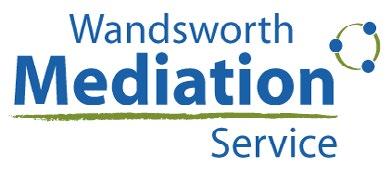

a: St Marks Durie Hall, Battersea Rise, London SW11 1EJ
Wandsworth Mediation Service (WMS) is a charity that was set up in 2004. We now offer 4 types of mediation: community, family, inter-generational and commercial. All of our mediations are undertaken by volunteer mediators who are all trained and qualified mediators committed to serving their local community. All fees generated are used to facilitate conflict resolution and mediation for those who cannot afford it. WMS is also involved with delivering a number of conflict resolution skills courses within schools in the borough, as well as in at Wandsworth Council.
CEDR
t: +44 (0)20 7536 6000 e: training@cedr.com w: www.cedr.com
CEDR Mediator Skills and Workplace Training are five-day programmes of comprehensive tuition and participation in effective dispute resolution where participants are trained and assessed for CEDR Accreditation, internationally recognised as the standard of excellence. CEDR has accredited over 7,000 mediators in over 70 jurisdictions.


Mediation
Conflict Resolution
Mediation
Employee Relations
Conflict Resolution
Facilitation
Employee Relations
Training
Facilitation Training
‘Working with individuals and organisations to improve their workplaces and working relationships’
‘Working with individuals and organisations to improve their workplaces and working relationships’
www.stillhr.com
Call Robert Still: 07932 762448
www.stillhr.com
UK-wide, now based in West London and West Yorkshire!
Call Robert Still: 07932 762448
UK-wide, now based in West London and West Yorkshire!
Sponsored by:
t: +44 (0)20 7421 7444
At CIArb’s core is its delivery of training, education and qualifications. The Institute has established a worldwide reputation for excellence in these areas with courses suitable for all levels of experience. Our Training Pathways deliver expert know-how and support career progression in the ADR field.
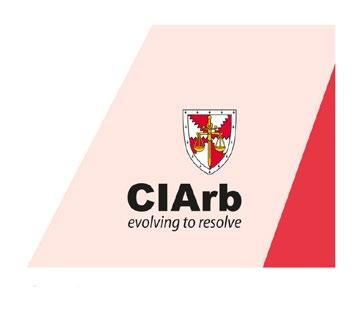

t: +44 (0)20 7938 0945 e: Timmy.kurtuldum@cic-eap.co.uk w: www.cic-eap.co.uk
a: 23 Kensington Square W8 5HN Contact: Timmy Kurtuldum
As one of the UK’s leading providers, CiC offers a comprehensive 5 day workplace mediation training. Designed for individuals wishing to develop and offer professional level mediation skills either as part of an internal mediation service or as independent practitioners. In association with Buon Consultancy

t: +44 (0)1763 852 225 e: info@cmpresolutions.co.uk w: www.cmpresolutions.co.uk

a: Low Farm, Brook Road, Bassingbourn, Hertfordshire SG8 5NT Contact: Richard Peachey
Established in 1989, we have led the field of workplace mediation, setting up the UK’s first inhouse mediation service for Birmingham City Council. Since then we have set up hundreds of in-house services for employers large and small. We offer a range of endorsed training, from short workshops to raise awareness, through internationally recognised certificates in workplace mediation programmes, and advanced learning.
t: +44 (0)20 7831 0254 e: hannah.king@consensiopartners.co.uk w: www.consensiopartners.co.uk

a: 51 Musard Road, London W6 8NR Contact: Hannah King
Consensio is a leading workplace mediation training provider, helping organisations to manage workplace conflict. Our services include: 1) mediation and conflict management training, ranging from taster events to accredited training, 2) external mediation services for two-party and team disputes, 3) conflict coaching and 4) consultancy services to transform organisational responses to conflict.


t: +44 (0)131 524 8188 e: info@core-solutions.com w: www.core-solutions.com
Core’s flagship mediation training course is highly regarded across the UK and beyond. Tried and tested from years of experience in mediation and in some of the toughest negotiations, our internationally recognised team of coaches is led by senior mediator, John Sturrock QC. “It simply is the best course I’ve ever attended. The whole course was incredibly interesting, engaging and challenging!” - Participant from major bank. Registration for Core’s 2017 Residential Summer School is open.
Sponsored by:

t: +44 (0)1206 217 133 e: mediation@gleamed.co.uk w: www.gleamed.co.uk

a: 63 West Stockwell Street, Colchester CO1 1HE. London Office also available Contact: Tom Thomas
GLEAMED offers mediation awareness training presentations to businesses, organisations, lawyers, etc. and the School of Law at University of Essex. We also offer OCN accredited and Civil Mediation Council compliant mediator training courses for civil/commercial mediation, workplace/employment mediation and community mediation - including neighbourhood mediation, inter-generational mediation and peer mediation.
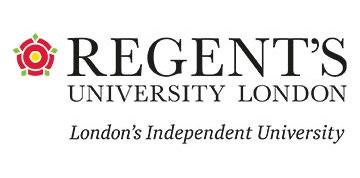
t: +44 (0)20 8339 0767 e: paul@paulrandolph.net w: www.regents.ac.uk/mediate a: Regent’s University London, Inner Circle, Regent’s Park, London NW1 4NS
Contact: Paul Randolph
Study the skills for conflict resolution and become an accredited mediator with our five-day course. At Regent’s our unique psychotherapeutic method of mediation training will equip you with a framework for conflict management and resolution crucial for dealing with commercial, employment, workplace, legal, industrial and personal disputes. We focus on providing a high standard of teaching from experienced tutors delivered in a quality environment.
t: +44 (0)1446 760 933 e: info@resolution-at-work.co.uk
Resolution at Work provides thought provoking, creative and engaging training. We have an open training programme and provide bespoke in-house training to meet clients’ needs. Working with national clients we have a team of talented trainers with experience from a variety of different backgrounds. Our range of training courses includes accredited workplace mediation skills, difficult conversations, conflict management, workplace investigations, conflict coaching and team conflict. Additionally, we provide supervision and support for practising mediators.
t: +44 (0)7932 762 448 e: robert@stillhr.com w: www.stillhr.com Contact: Robert Still
The ‘first’ accredited workplace mediation training to be established in the UK, designed by PMR Ltd and receiving high acclaim since 1996. OCN Accredited 6-day programme; delivered in-house by qualified and practicing workplace mediator, Robert Still FCIPD.
t: +44 (0)20 7223 7744 e: wms@wandsworthmediation.co.uk w: www.wandsworthmediation.co.uk


a: St Marks Durie Hall, Battersea Rise, London SW11 1EJ
Wandsworth Mediation Service (WMS) is a charity that was set up in 2004. We now offer 4 types of mediation: community, family, inter-generational and commercial. All of our mediations are undertaken by volunteer mediators who are all trained and qualified mediators committed to serving their local community. All fees generated are used to facilitate conflict resolution and mediation for those who cannot afford it. WMS is also involved with delivering a number of conflict resolution skills courses within schools in the borough, as well as in at Wandsworth Council.
Mediation
Conflict Resolution
Mediation
Employee Relations
Conflict Resolution
Employee Relations
Facilitation Training
Facilitation Training
‘Working with individuals and organisations to improve their workplaces and working relationships’
‘Working with individuals and organisations to improve their workplaces and working relationships’
Sponsored by:

38% of UK employees reported some form of interpersonal conflict.
26% of UK employees have ongoing difficult relationships at work.
IN YOUR
Resolving conflict in any organisation is a critical skill. Building on our internationally recognised and industry leading commercial Mediator Skills Training, CEDR’s Employment and Workplace course will provide participants with the full skill set required for the effective mediation of workplace and employment disputes.
Under the expert guidance of some of the UK’s leading mediator trainers, all experienced in commercial and specifically employment and workplace mediation, participants will learn how to:
n Settle disputes and conflicts effectively - in days rather than weeks or months, saving vital management time
n Add value to organisations by effective and timely management of conflicts and disputes - by finding sustainable solutions to potentially intractable problems
n Manage the mediation process and facilitate constructive negotiation
n Advise others on the features and uses of other effective dispute resolution techniques
This highly participative programme is a core management competency and forms the toolkit for:
n HR Professionals
n Employment Lawyers or In-house counsel
n General Managers and Executives
n Trade Union officials
Recognising that a number of attendees on this Employment and Workplace programme may decide either at the outset, or at a later stage, that they would like to work towards achieving Full CEDR Accreditation, we also deliver a three-day Accreditation module as a follow up to this course.
Successful completion of this commercial conversion course leads to the title of CEDR Accredited Mediator.
Available as an open course throughout the year on an in-house basis
n Intensive course with over 50 hours of teaching
n Live demonstration of mediation process and skills
n Active engagement through role play
n Extensive coaching of participants
n One-to-one feedback
“A great introduction to mediation for those wishing to understand the process and start practicing the skills.”
SENIOR MANAGER, EMPLOYEE RELATIONS
HR STRATEGY & POLICY, ERNST & YOUNG LLP
“An excellent course that has provided a usable framework for use within the workplace.”
HR BUSINESS PARTNER, THREE
“An excellent course with empowering faculty, very challenging but entirely worthwhile.”
SOLICITOR, CROWELL & MORING
www.cedr.com
If you would like to find out more or arrange a meeting to discuss your needs please contact CEDR by emailing training@cedr.com or calling +44 (0)20 7536 6000.